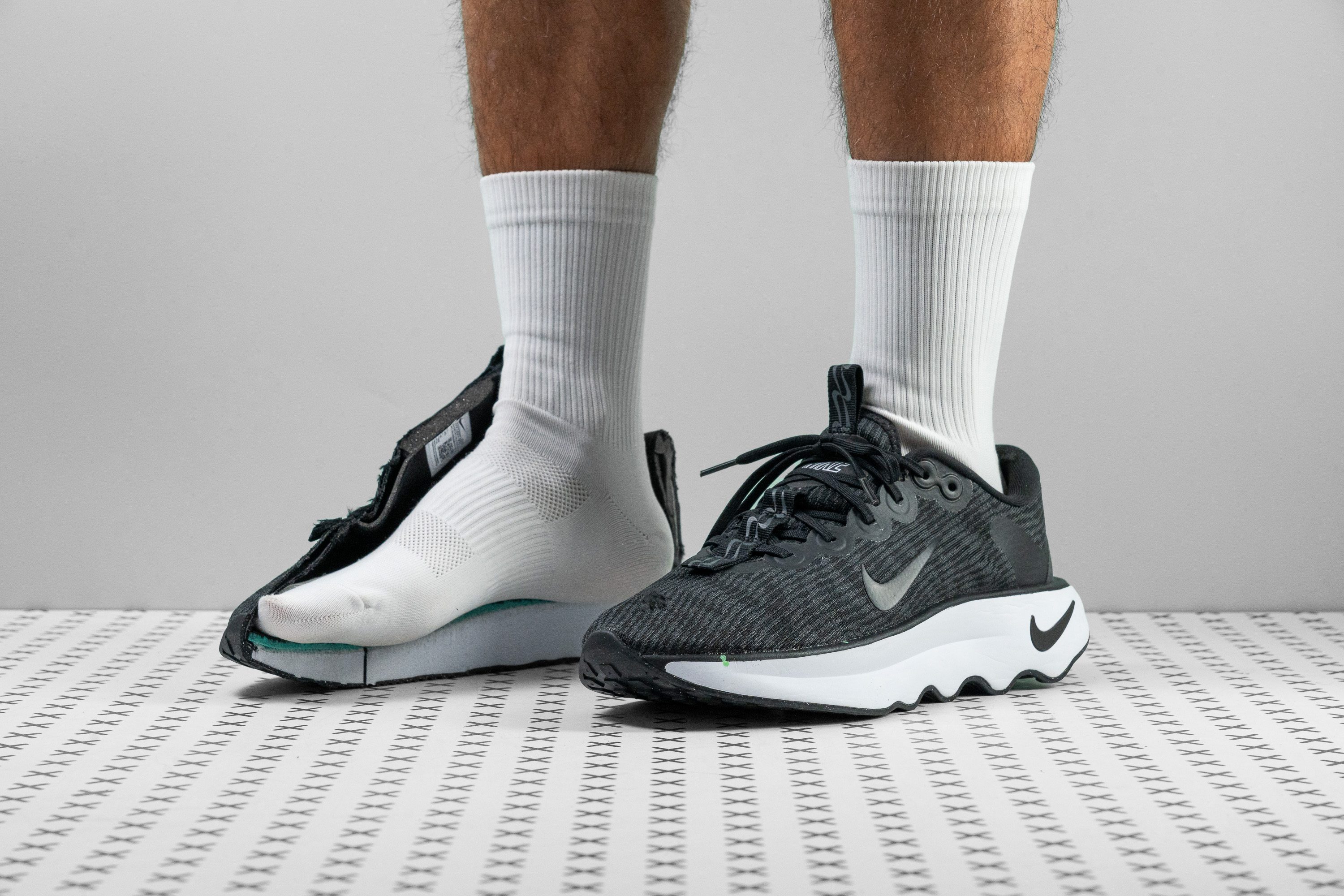Our verdict
- Top pick in best walking shoes
- Top pick in best shoes for walking on concrete
Pros
- Rocker makes for effortless walks
- Audaciously plush cushioning
- Extra lively and bouncy ride
- Out-of-the-box comfort
- Very wide and stable base
- Durable outsole
- Amazing wear resistance in the upper
Cons
- Lacks breathability for hot weather
- Sole develops wrinkles easily
- Rocker takes time to get used to
- Lacks grip on wet surafces
Audience verdict
- Top 20% in walking shoes
- Top 11% in cushioned walking shoes
- Top 23% most popular walking shoes
Comparison
The most similar walking shoes compared
+ + Add a shoe | |||||
|---|---|---|---|---|---|
| Audience score | 91 Great! | 90 Great! | 82 Decent! | 90 Great! | |
| Price | $110 | $160 | $140 | $115 | |
| Arch support | Neutral | Neutral | Neutral | Stability | |
| Shock absorption | High | High | Moderate | High | |
| Energy return | High | High | Moderate | Moderate | |
| Traction | Moderate | High | - | High | |
| Condition | - | - | - | Flat feetOverpronation | |
| Orthotic friendly | ✓ | ✓ | ✓ | ✓ | |
| Weight lab Weight brand | 10.8 oz / 306g 10.8 oz / 305g | 9.4 oz / 266g | 10.9 oz / 309g 10.9 oz / 309g | 11 oz / 312g | |
| Lightweight | ✗ | ✓ | ✗ | ✗ | |
| Breathability | Moderate | Warm | Warm | Breathable | |
| Use | CityDisneyEurope | For standing all dayTravelCityDisneyEuropeFor nurses | For standing all dayCityDisneyEurope | For standing all dayCityDisneyEuropeFor nursesRecovery | |
| Size | True to size | True to size | True to size | True to size | |
| Midsole softness | Soft | Balanced | Balanced | Soft | |
| Difference in midsole softness in cold | Small | Normal | Big | Normal | |
| Insole thickness | Thin | Very thin | Average | Average | |
| Removable insole | ✓ | ✓ | ✓ | ✓ | |
| Stiffness | Moderate | Moderate | Stiff | Moderate | |
| Torsional rigidity | Stiff | Stiff | Stiff | Stiff | |
| Heel counter stiffness | Flexible | Flexible | Moderate | Flexible | |
| Heel tab | None | None | Finger loop | Finger loop | |
| Drop lab | 9.3 mm | 8.7 mm | 8.0 mm | 8.6 mm | |
| Heel stack lab | 34.9 mm | 35.5 mm | 34.1 mm | 36.0 mm | |
| Forefoot | 25.6 mm | 26.8 mm | 26.1 mm | 27.4 mm | |
| Width / fit | Narrow | Medium | Narrow | Narrow | |
| Toebox width | Medium | Medium | Narrow | Medium | |
| Closure | Laces | Bungee laces | Bungee laces | Laces | |
| Toebox durability | Good | Good | Good | Decent | |
| Heel padding durability | Decent | Bad | - | Good | |
| Outsole durability | Decent | Good | - | Good | |
| Midsole width - forefoot | Average | Wide | Average | Average | |
| Midsole width - heel | Wide | Wide | Average | Wide | |
| Outsole hardness | Very hard | Average | Average | Average | |
| Outsole thickness | Average | Average | Average | Average | |
| Tongue padding | Thick | Average | Average | Average | |
| Tongue: gusset type | Bootie | Both sides (semi) | None | None | |
| Material | Mesh | Mesh | - | Mesh | |
| Ranking | #7 Top 20% | #16 Top 45% | #34 Bottom 5% | #14 Top 39% | |
| Popularity | #8 Top 23% | #4 Top 12% | #3 Top 9% | #11 Top 31% |
Who should buy
The Nike Motiva's unique design can be perplexing when you first see it. Having worn and lab-tested the shoe, we believe that it is most suitable for the people who:
- want a fitness walking shoe that can easily transition into jogging
- a rockered shoe that promotes faster and smoother heel-to-toes
- a shoe with extra plush, bottomless cushioning
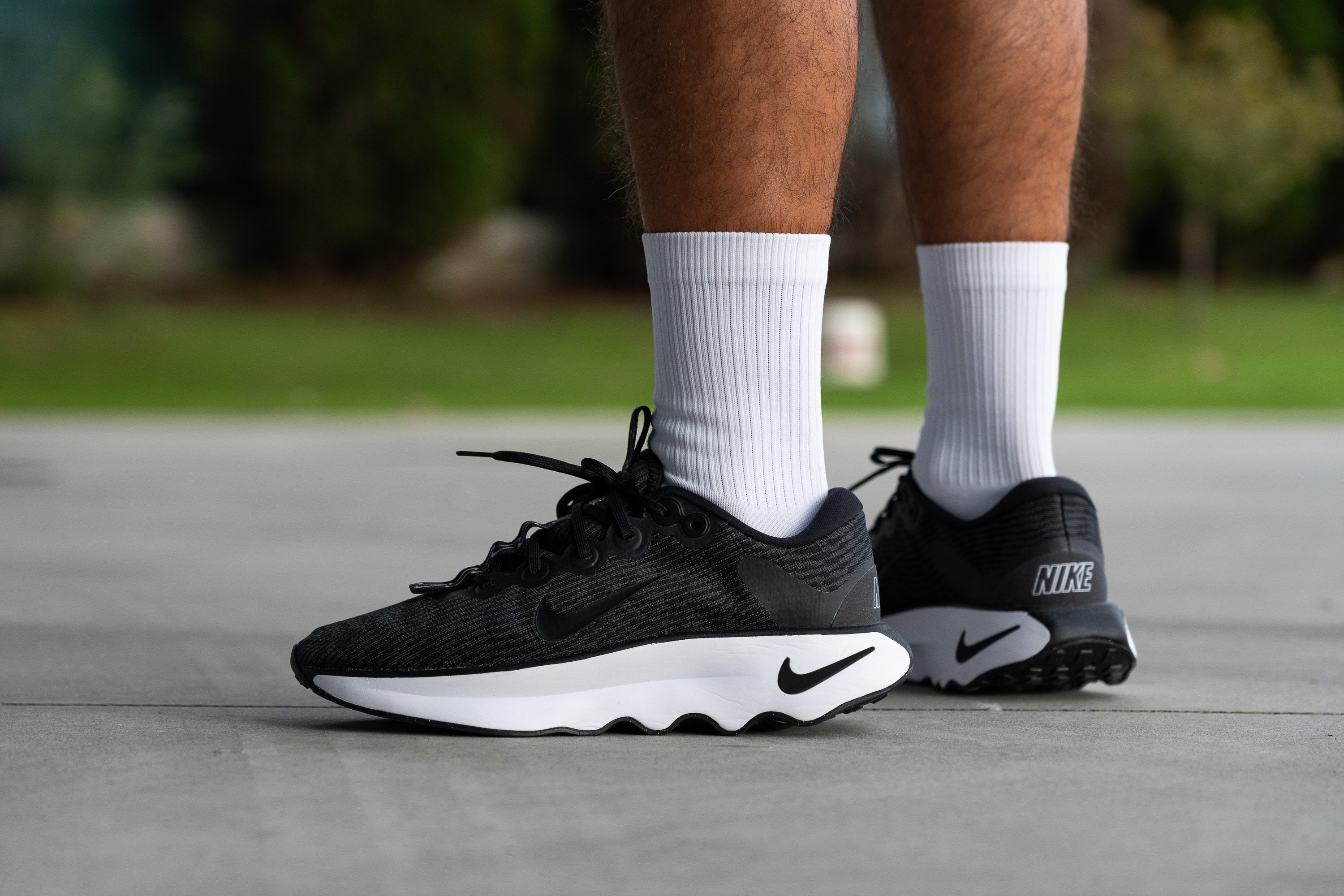
Who should NOT buy
The Nike Motiva offers a bundle of benefits but not enough for overpronators. We think that people who need a stable and supportive platform with arch support would be better off with the Skechers Max Cushioning Arch Fit.
And if you specifically need a summer-ready shoe, the Nike Winflo 10 is a more breathable alternative.
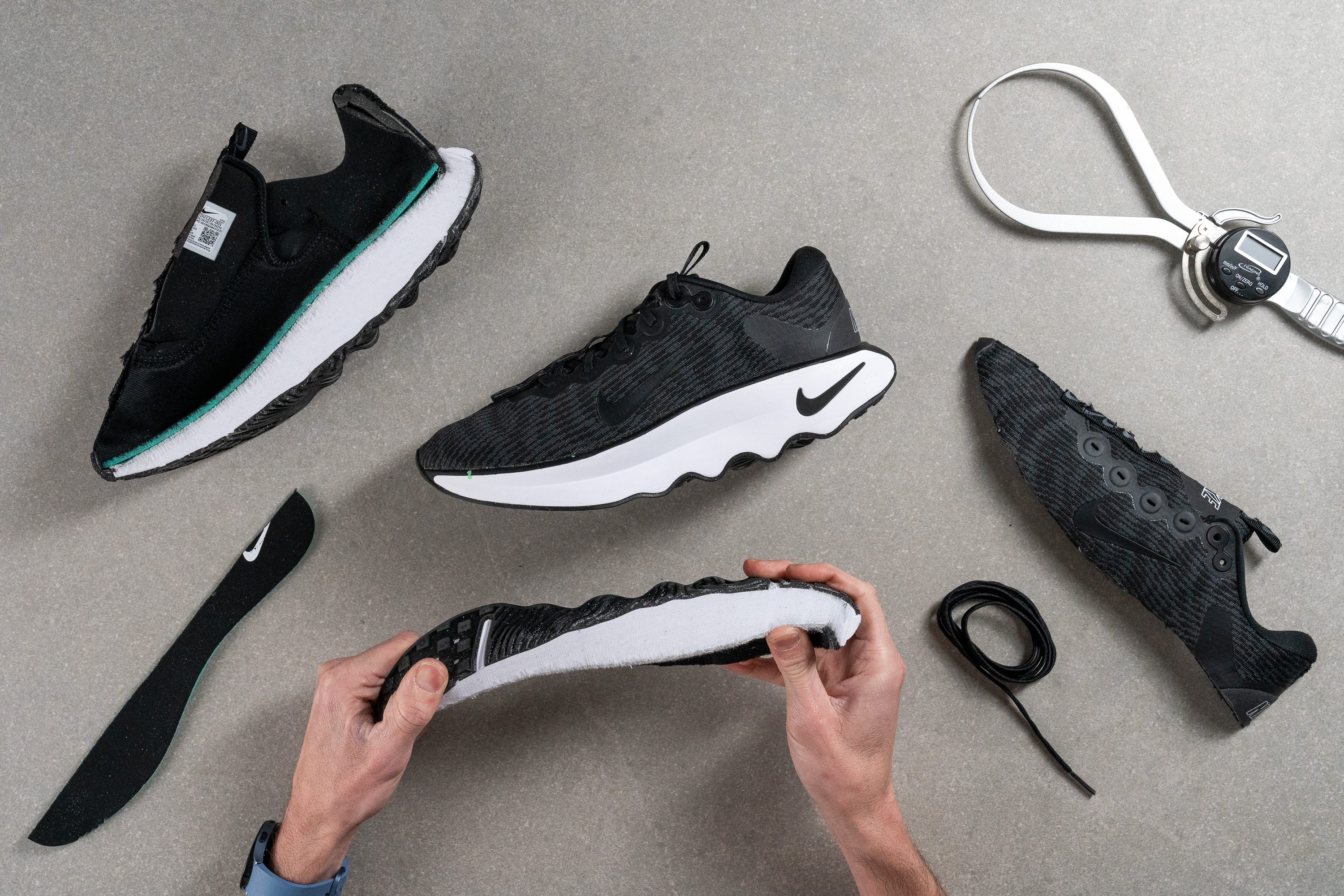
Cushioning
Shock absorption
The Nike Motiva provides tons of cushioning for people who are just starting out running and tend to transition into walking a lot. At this stage, the wearer lands primarily on their heels which calls for better impact protection from the shoe in this area.
With an impressive shock absorption measurement of 133 SA, the Motiva proved to be one of the best cushioned walking shoes that ever got to our lab! You can expect a ton of comfort in each step, even when wearing this shoe all day long.
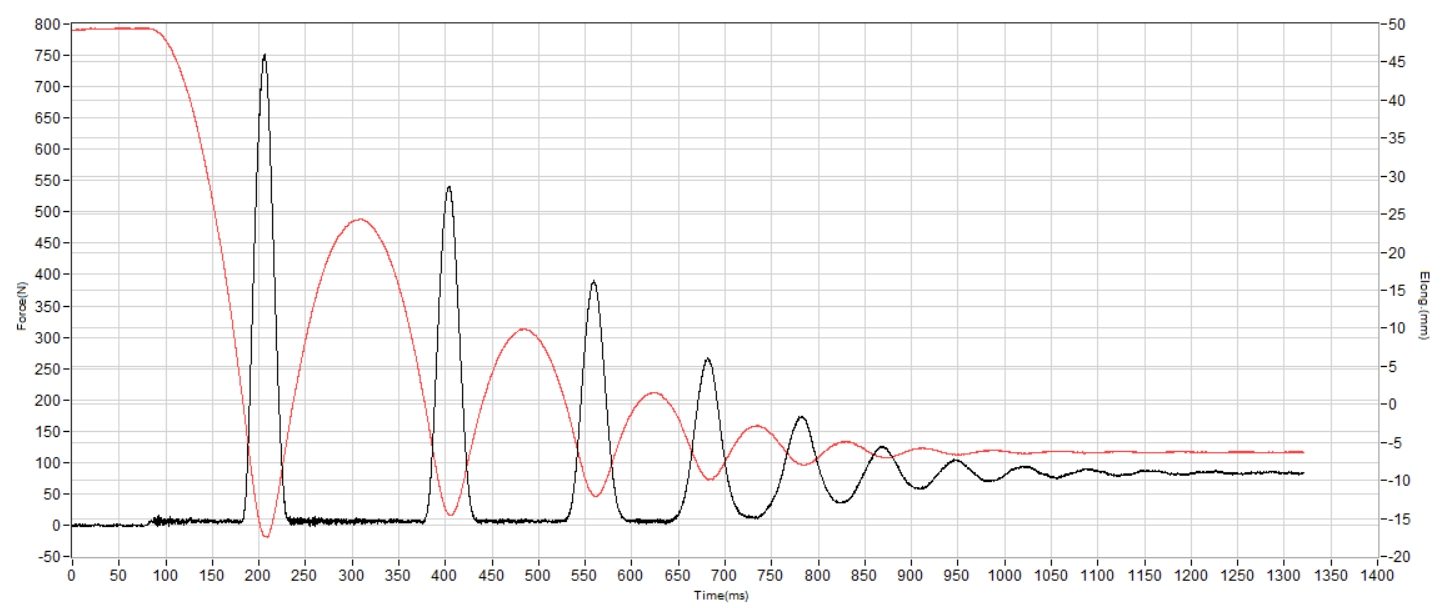
| Motiva | 133 SA |
| Average | 111 SA |
Energy return
We are also pleased to see an above-average energy return of 58% in this Nike shoe! Its rebound is on par with the average of running shoes which makes the Motiva's ride more energetic and fun and keeps your feet and legs fresher for longer.
| Motiva | 58.0% |
| Average | 51.1% |
Heel stack
And the Motiva does just that. Measuring its thickness in the heel, our caliper showed a stack height of 34.9 mm. That's notably thicker than the average walking shoe, providing a very generous squish underfoot.
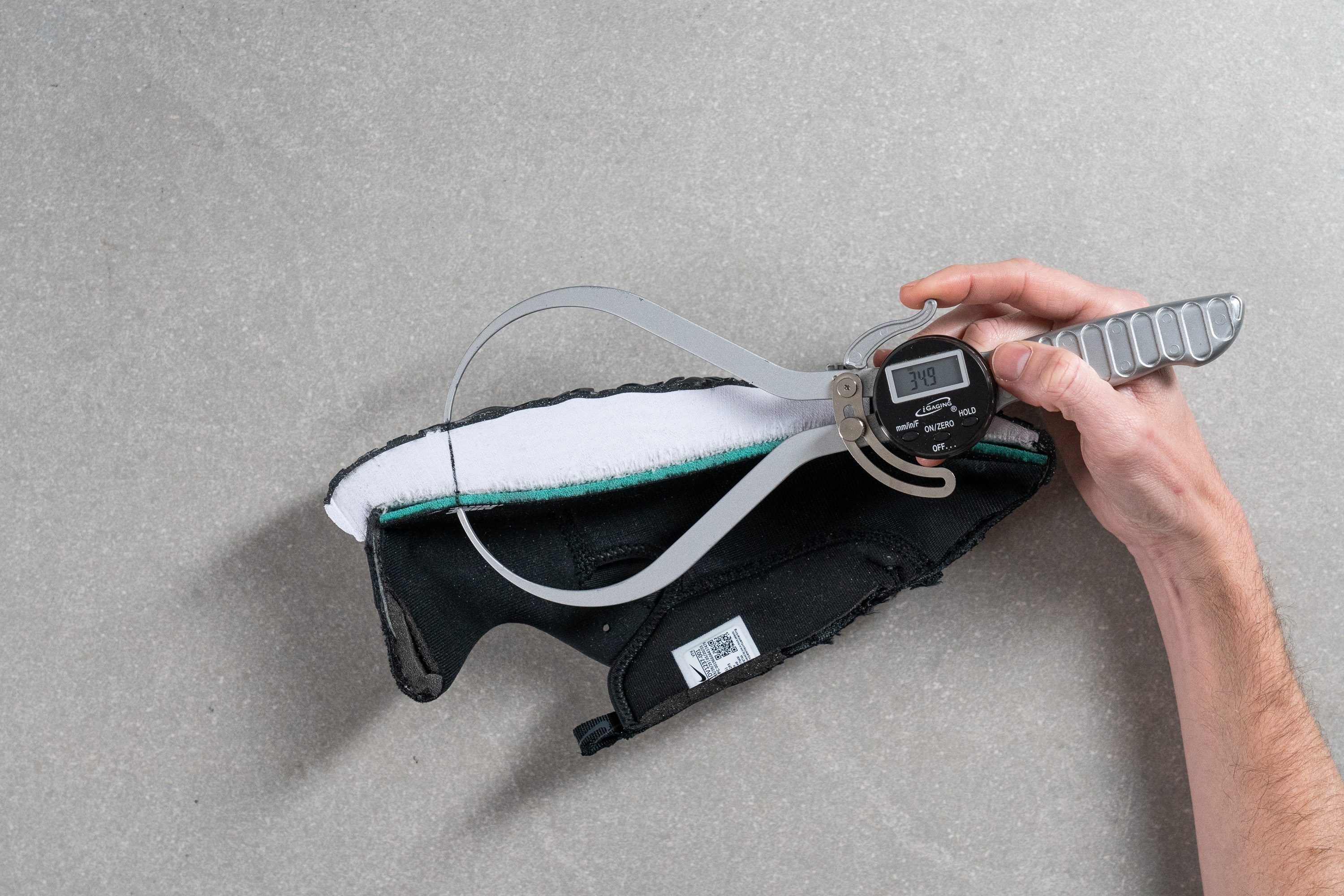
| Motiva | 34.9 mm |
| Average | 32.3 mm |
Forefoot stack
The Nike Motiva's midsole also exceeds the average in its forefoot cushioning. Based on our caliper measurement, it is 25.6 mm thick under the ball of the foot.
That way, it's not just the heel that receives love in this fabulously cushioned walking shoe.
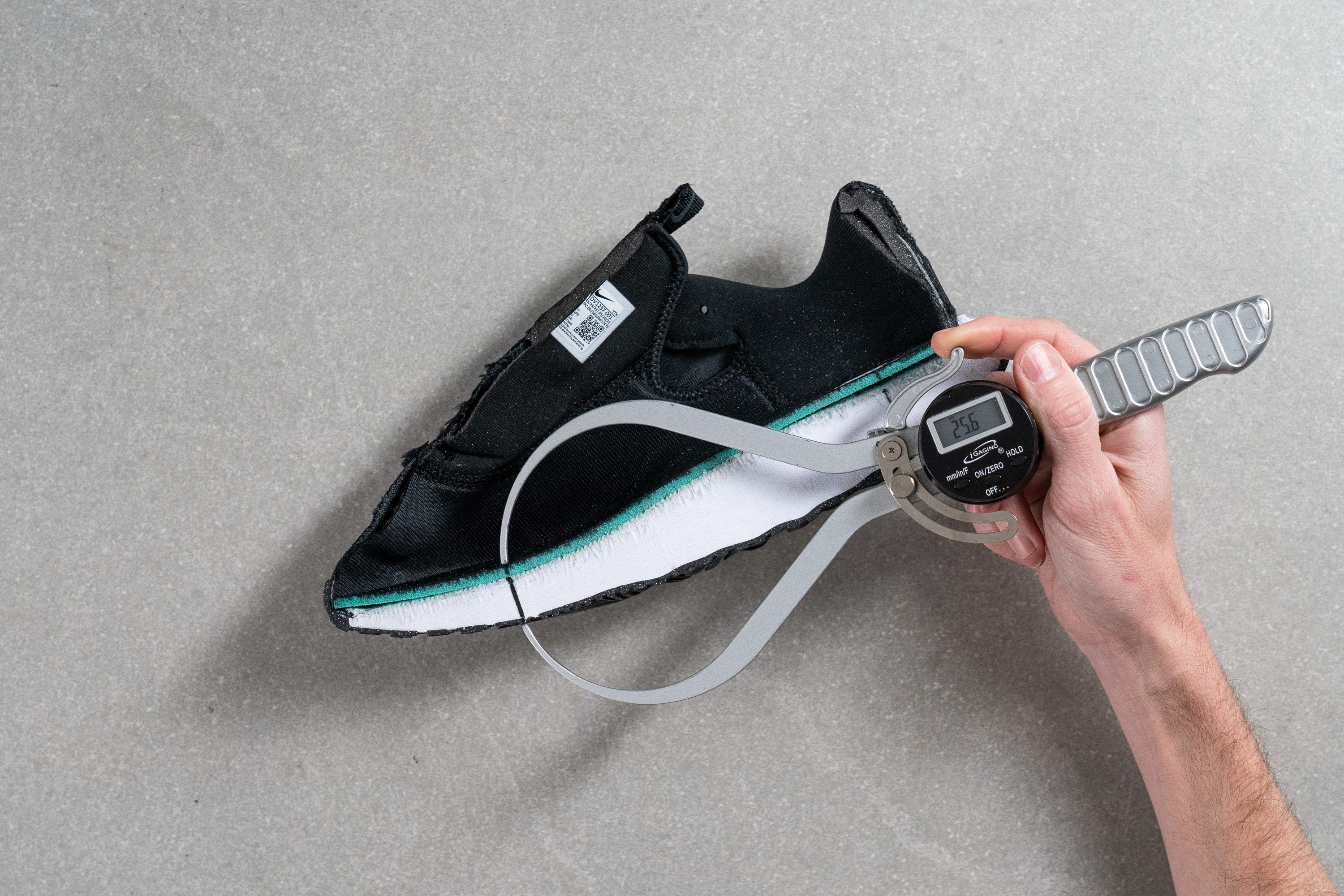
| Motiva | 25.6 mm |
| Average | 21.9 mm |
Drop
The difference in height between the heel and the toes gives us a drop of 9.3 mm. This is a standard heel elevation for a walking shoe as it adds support and takes the pressure off the Achilles.
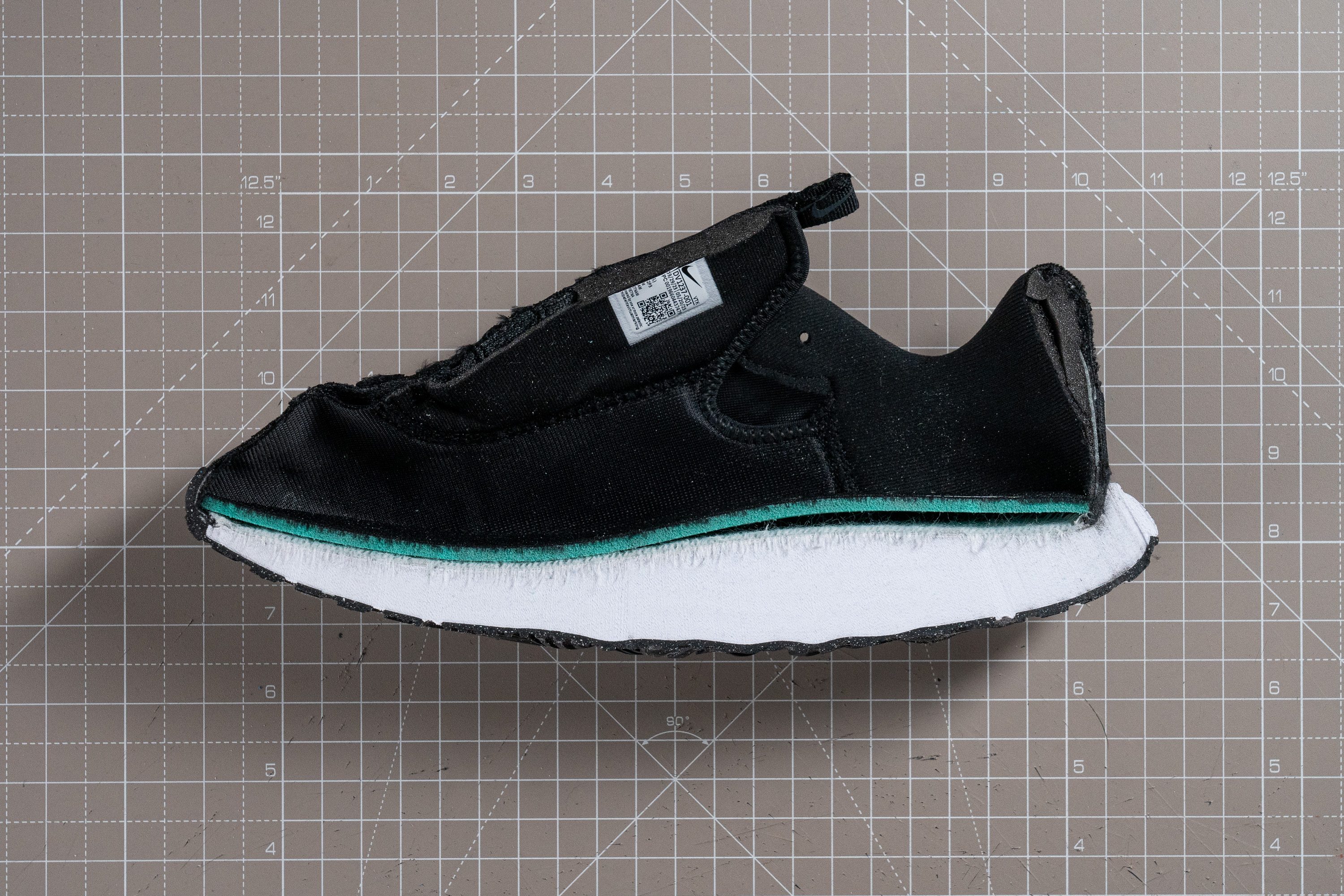
| Motiva | 9.3 mm |
| Average | 10.4 mm |
Midsole softness
UpdatedThe squish is real in the Nike Motiva. Not only is the foam itself very plush, but the shoe's peculiar wavy sole and protruding bumps at the bottom also help enhance the compression.
We used our Asker C durometer to measure the foam's softness under the heel. The tool returned a low reading of 33.0 AC, almost 50% softer than the average walking shoe foam!
Walking in the Nike Motiva was pure joy! The ride felt marshmallowy and luxurious for hours... Unfortunately, there is a caveat: the foam starts to crease almost immediately.
And for heavier wearers, we anticipate the cushioning bottoming out more quickly.
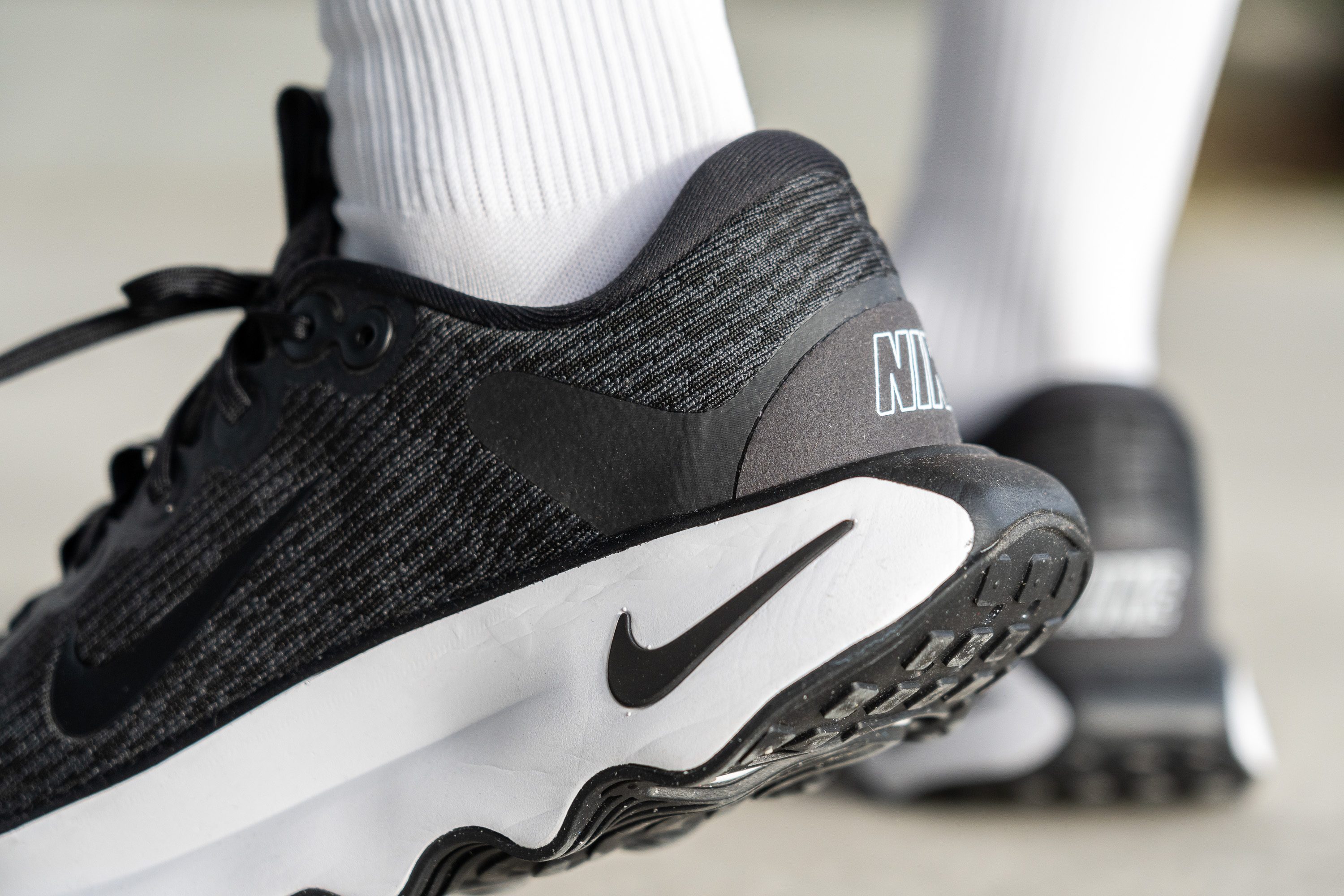
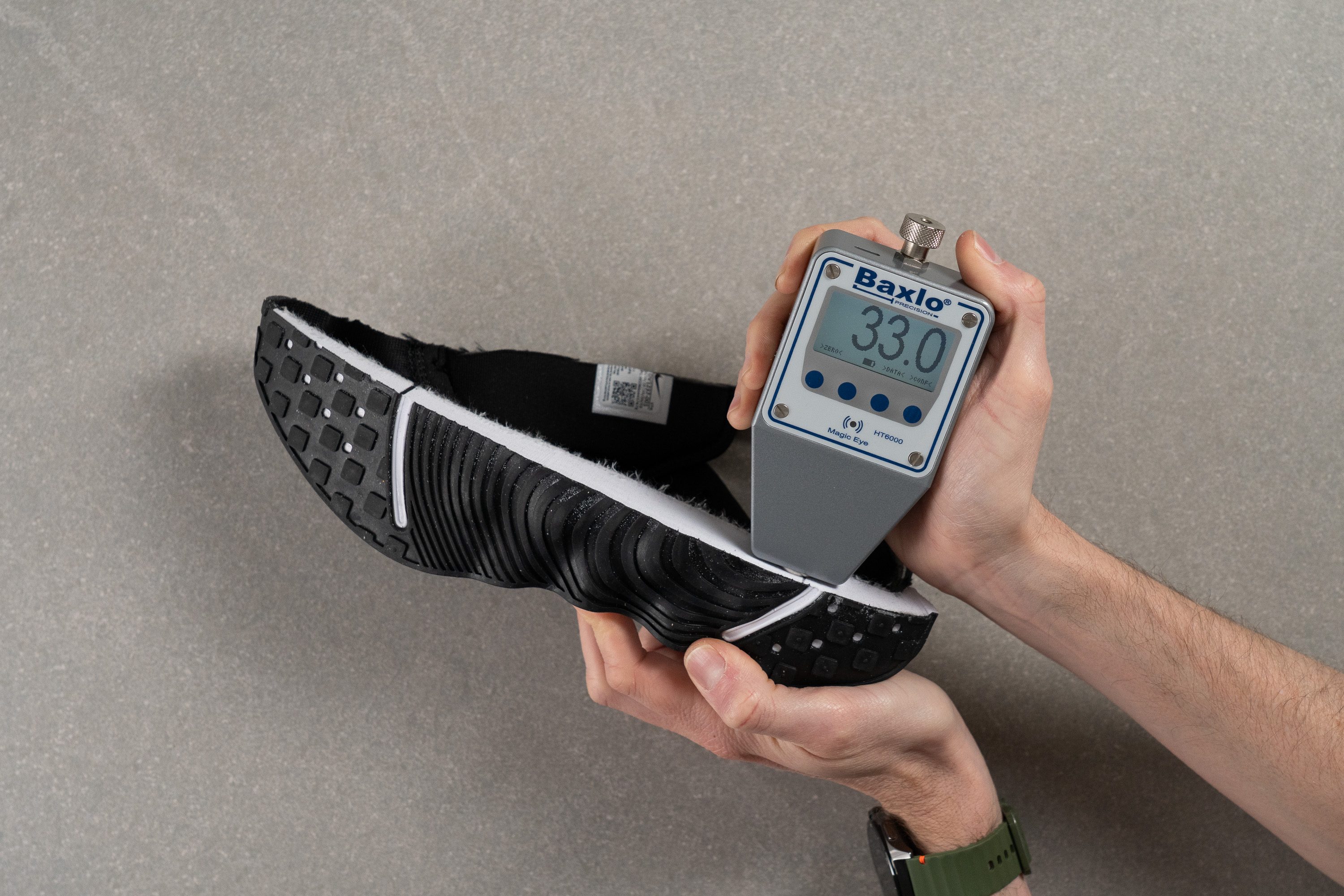
| Motiva | 33.0 AC |
| Average | 48.2 AC |
Rocker
But the star of the show is of course the Motiva's exaggerated rocker design. This feature has long established itself in the running shoe realm but there is no reason for it not to work in walking shoes!
If this looks all new and weird to you, a simple metaphor would be a rocking chair. As opposed to its flat counterparts, this chair has raised curvy edges that allow for quick and smooth transitions from front to back.
Same here. As you step on the heel, the shoe literally rocks your foot forward to the toes, encouraging you to take the next step more quickly.
Of course, it may take some time to get used to but we can assure you that it takes less than a day to fully adjust.
Size and fit
Size
Nike Motiva fits true to size (586 votes).
Internal length
| Motiva | 271.5 mm |
| Average | 269.6 mm |
Width / Fit
Nike shoes received numerous complaints for their uncomfortably narrow fit over the years. This must have led the brand to promise a "widened forefoot, arch, and toebox" in the Motiva.
But even though we never felt constricted in this walking shoe, it didn't seem like a particularly spacious one. So let's make a gel mold of this Nike shoe's interiors, shall we?
Once the mold was jellified, we measured its widest part with a caliper. Turns out that the Motiva is actually a bit narrower than the average walking shoe at 92.4 mm.
But to be fair, this goes in line with Nike's recommendation to get a half-size bigger in this model.
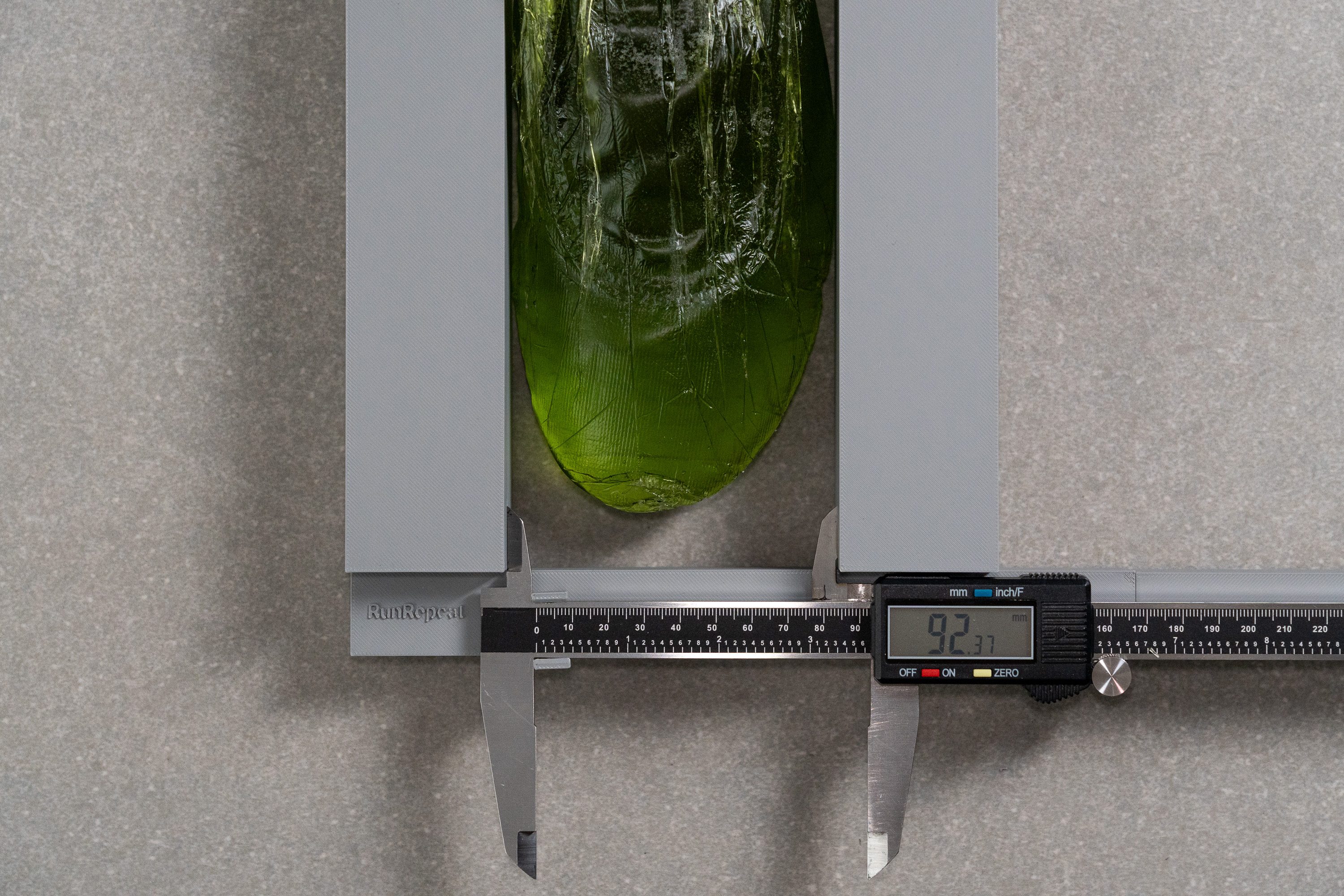
| Motiva | 92.4 mm |
| Average | 94.4 mm |
Toebox width
Gladly, the toebox tapering is rather mild in this Nike shoe. Measuring its width near the big toe, we got a standard reading of 71.0 mm.
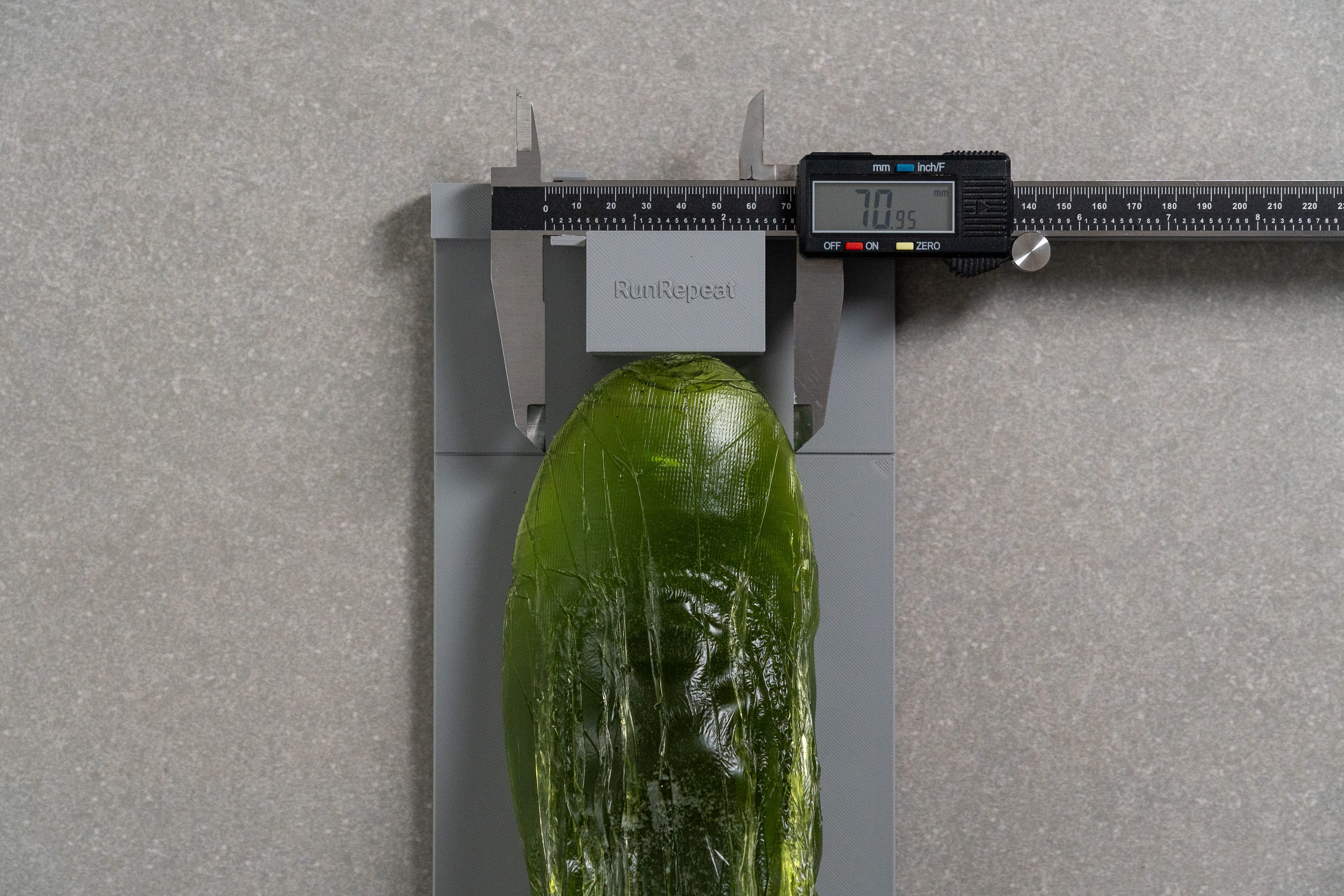
| Motiva | 71.0 mm |
| Average | 71.2 mm |
Toebox height
We also noticed that the Motiva's toebox fabric sits pretty close to the toes. That's because the shoe's toebox height is slightly lower than average at 24.4 mm.
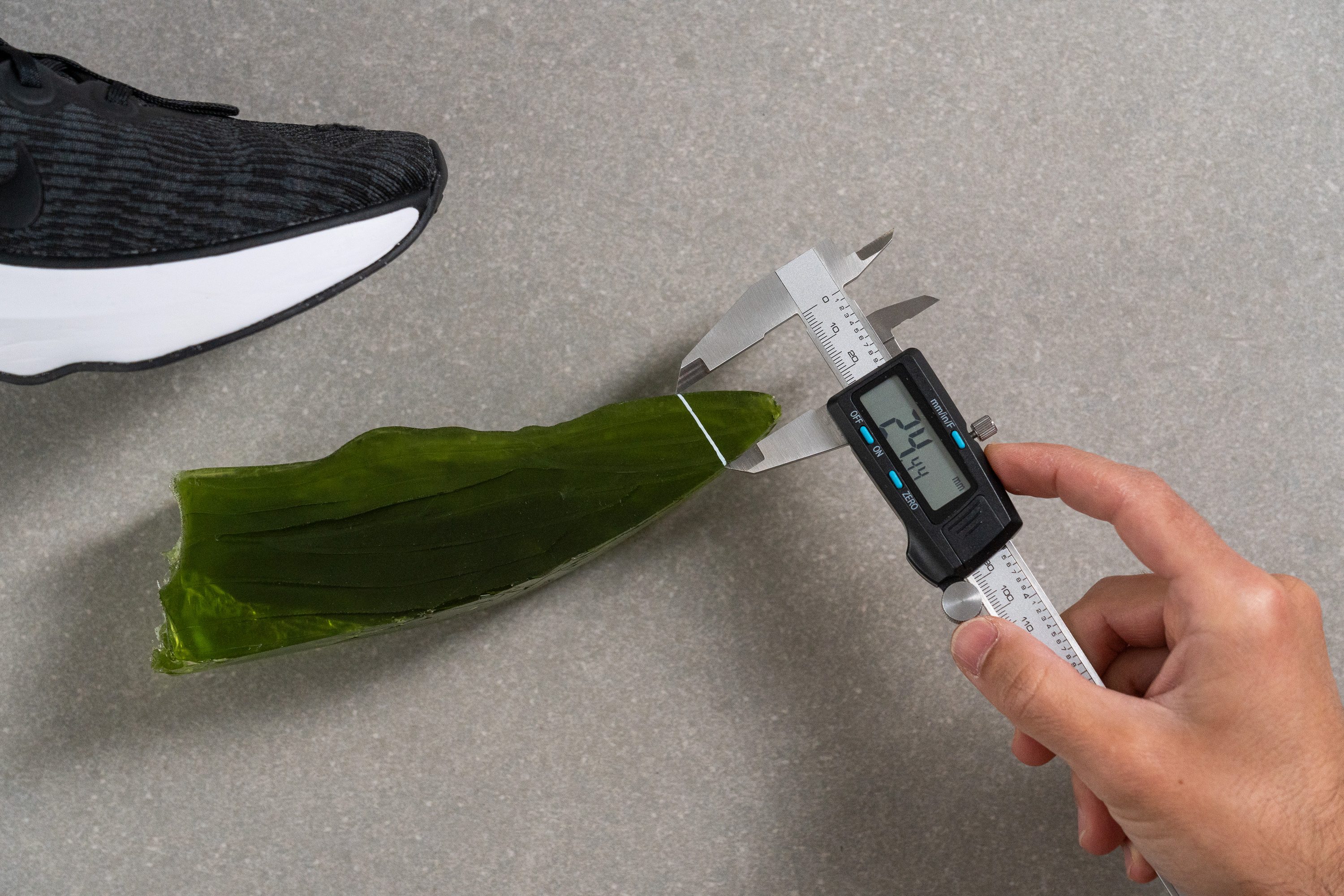
Even though its knit upper has some stretch to it, it's not enough to recommend the Nike Motiva for people with wide feet. Unfortunately, it's not available in wide options either.
| Motiva | 24.4 mm |
| Average | 26.4 mm |
Traction / Grip
Traction test
If dry roads and sidewalks are your regular walking scenario, then you have nothing to worry about in the Nike Motiva. But if you frequent wet cobblestones, tiles, and other slippery surfaces, you must tread carefully.
We thoroughly tested the shoe's outsole friction in the heel by performing a stomping action at a 7-degree angle and a 500N force on a wet slab of concrete.
With a low friction score of only 0.36, the Motiva offers a decent grip on dry pavement but you should be careful on anything slicker than that.
| Motiva | 0.36 |
| Average | 0.46 |
Outsole design
The shoe features Nike's signature waffle treads in the heel and forefoot but they merely serve a visual purpose as we didn't notice any added bite from them.
As for the lumpy midfoot design, it adds a pleasant massaging effect underfoot but detracts from the surefootedness on tricky surfaces like stone stairs.
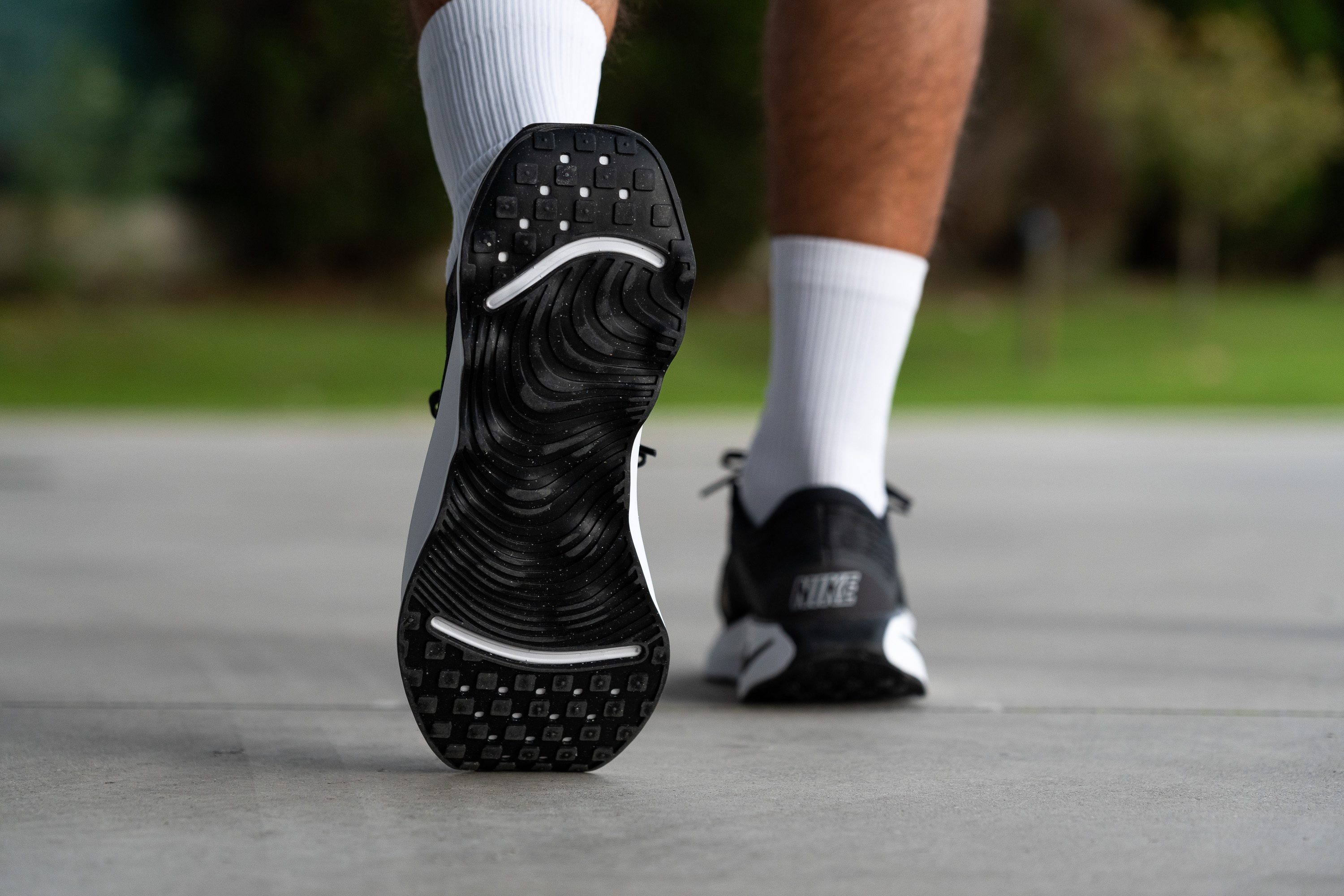
Flexibility / Stiffness
Because the Nike Motiva relies on the rocking motion so much, it is expected to be less flexible than a normal walking shoe.
Our flexibility lab test fully proves this. Using a shoe bending tester, we pushed the Motiva to a 30-degree angle and measured how much force it took to bend it that far. With a reading of 15.3N, it actually required just a little more than the average walking shoe.
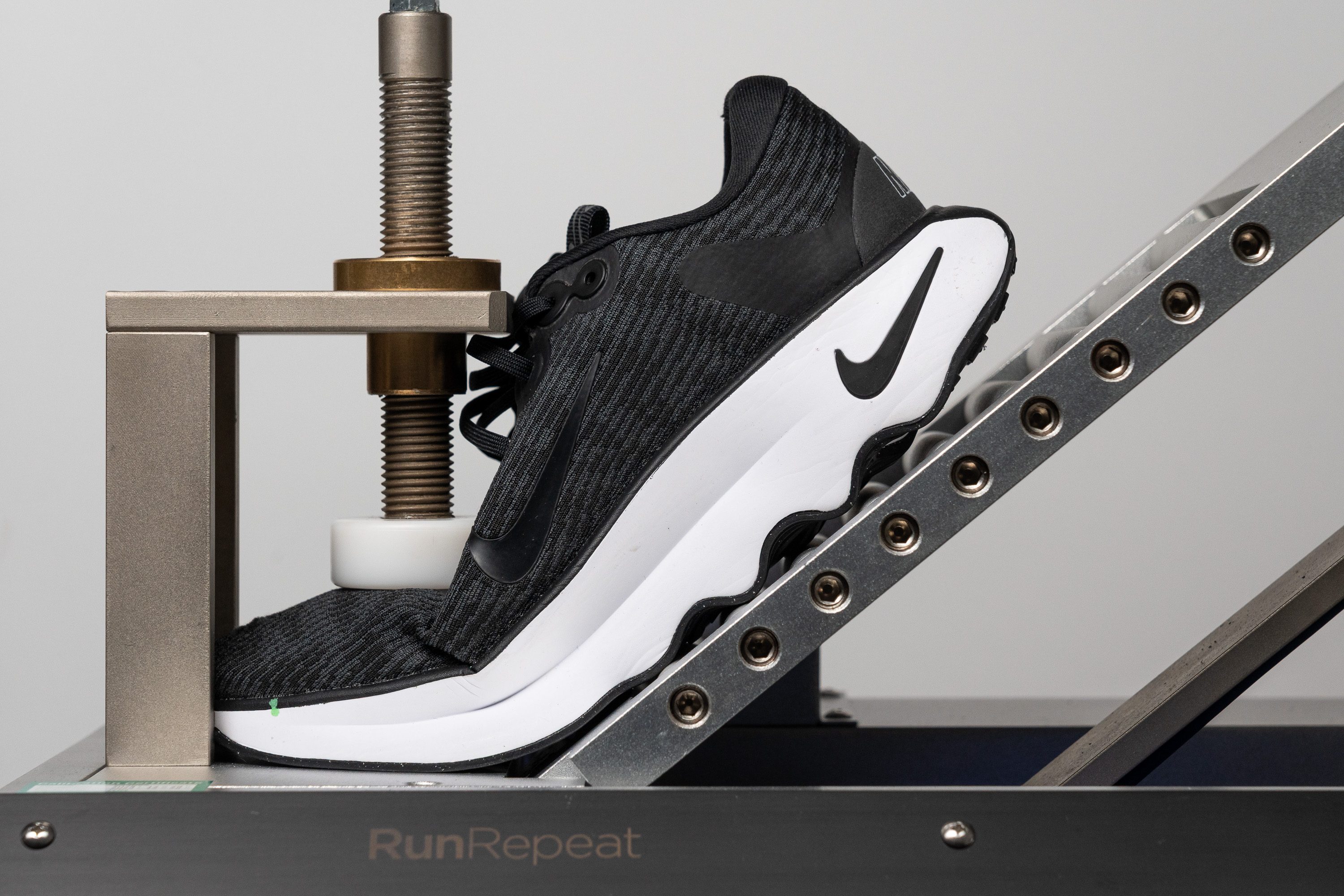
| Motiva | 15.3N |
| Average | 13.9N |
Stiffness in cold (%)
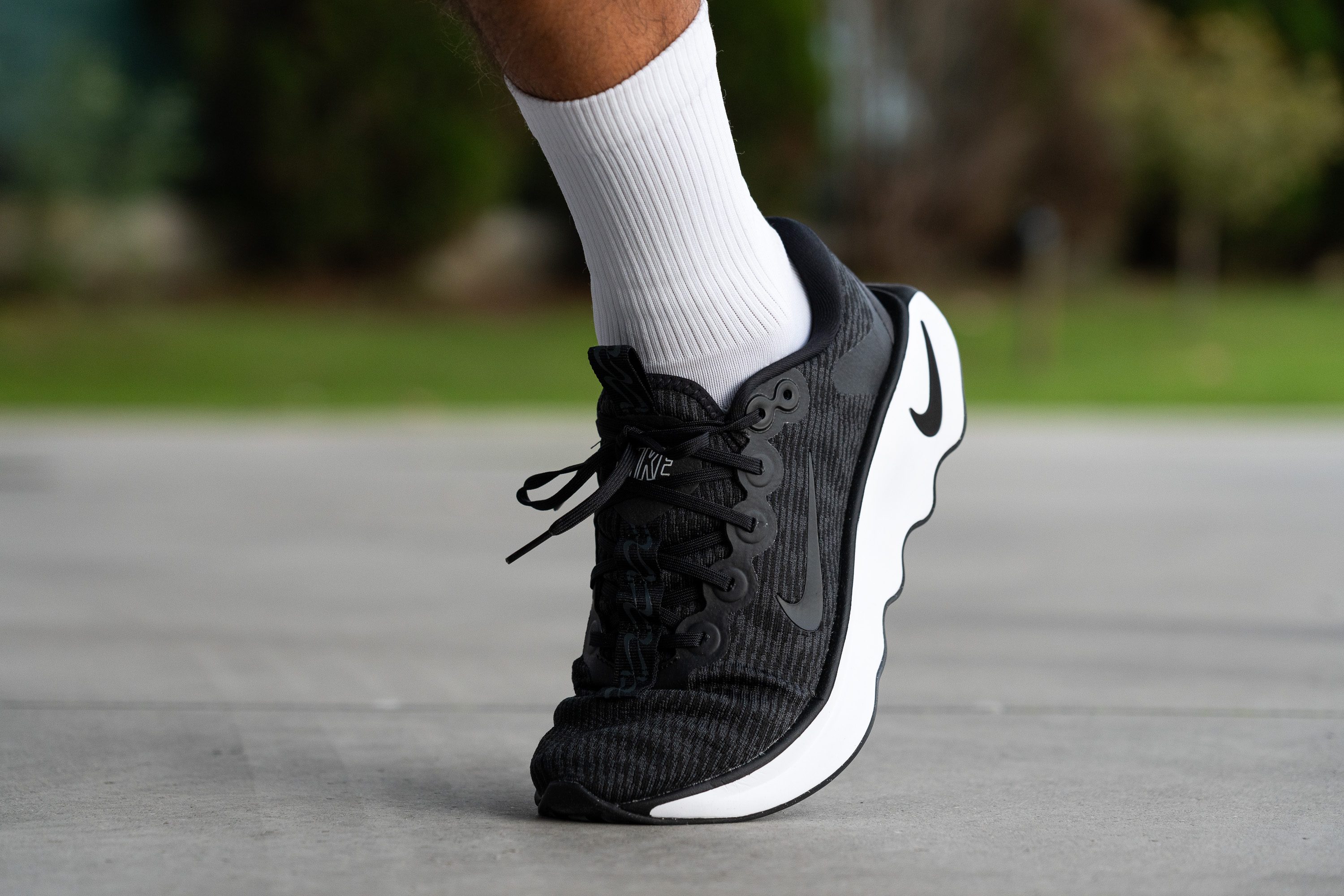
Weight
Given the amount of midsole foam and outsole rubber, we couldn't expect the Nike Motiva to be lighter than average. But it is far from being a heavy shoe too!
Tipping the scale at 10.8 oz (306g) in a men's US size 9, the Nike Motiva weighs exactly the same as other walking shoes with a heel stack of 34 mm and more. And it never felt like a drag on our feet either.
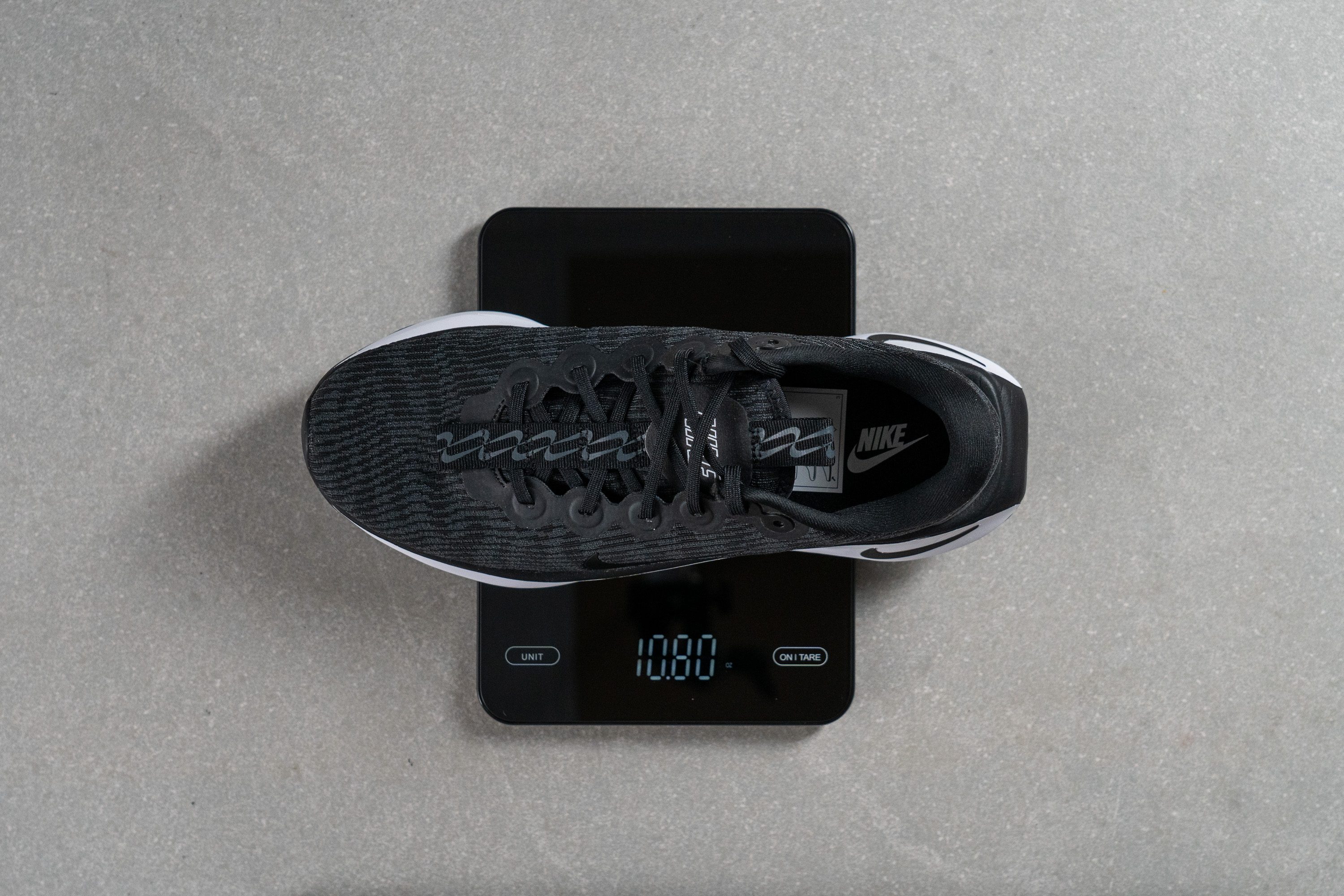
| Motiva | 10.8 oz (306g) |
| Average | 10.2 oz (288g) |
Breathability
Taking this Nike shoe out on a hot summer day is not the best idea. Even when we wore our thinnest socks, our feet ended up slightly damp at 80°F (27°C).
The shoe's lack of breathability was later confirmed in our lab. Using a smoke-pumping machine, we filled the shoe's upper with smoke and observed how quickly it would pass through the material.
Indeed, the Motiva's upper refused to release the smoke that easily. Comparing it to other walking shoes, we rated this Nike with a moderate score of 3 out of 5 for breathability.
To show you exactly how dense the shoe's upper material is, we hovered the half-cut upper over a light bulb. As you can see, there is not a single aperture that would let the light shine through!
Finally, we grabbed our microscope to investigate the knit mesh up close.
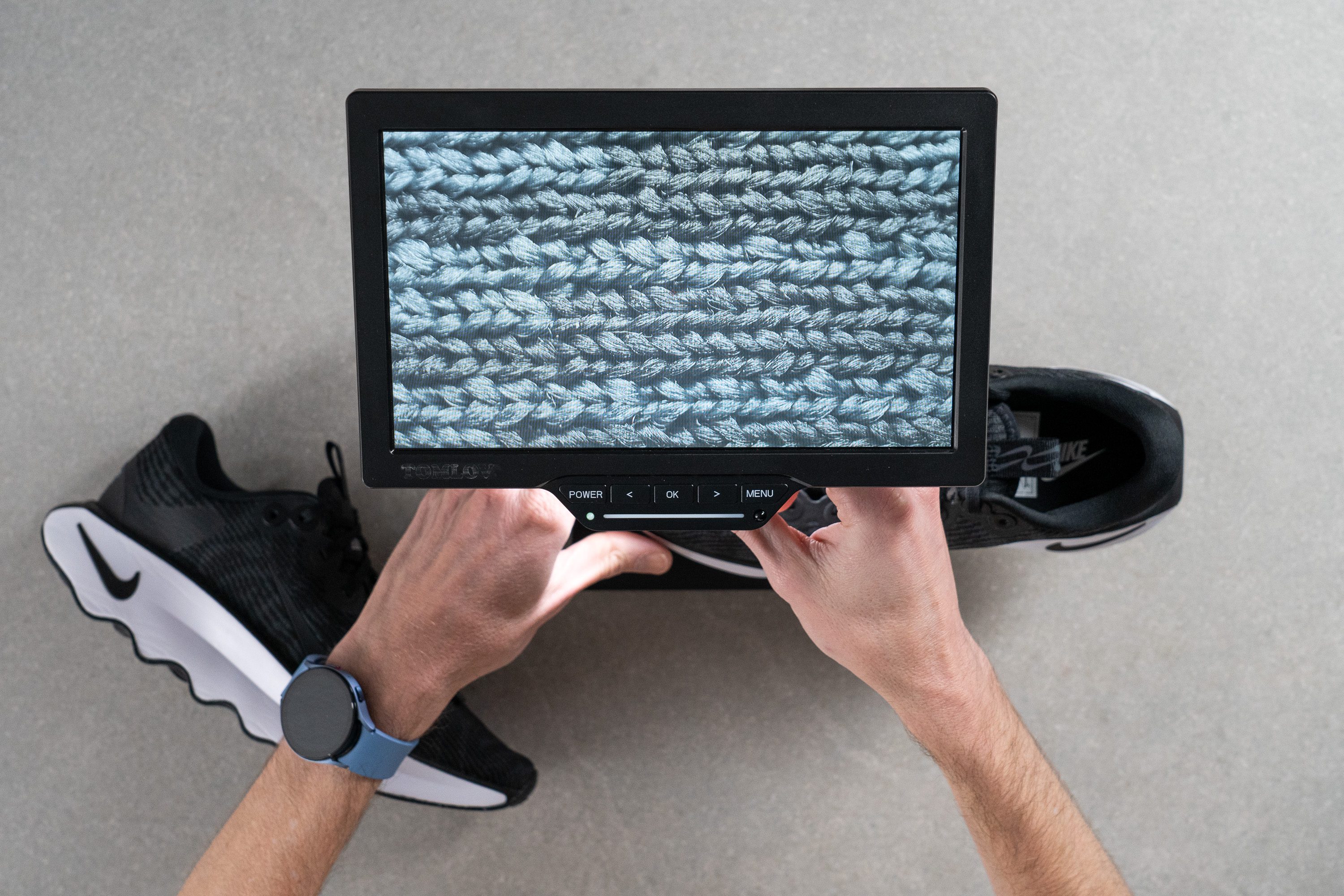
What we've got here are rather thick and densely woven threads that are bound together into a solid one-piece fabric.
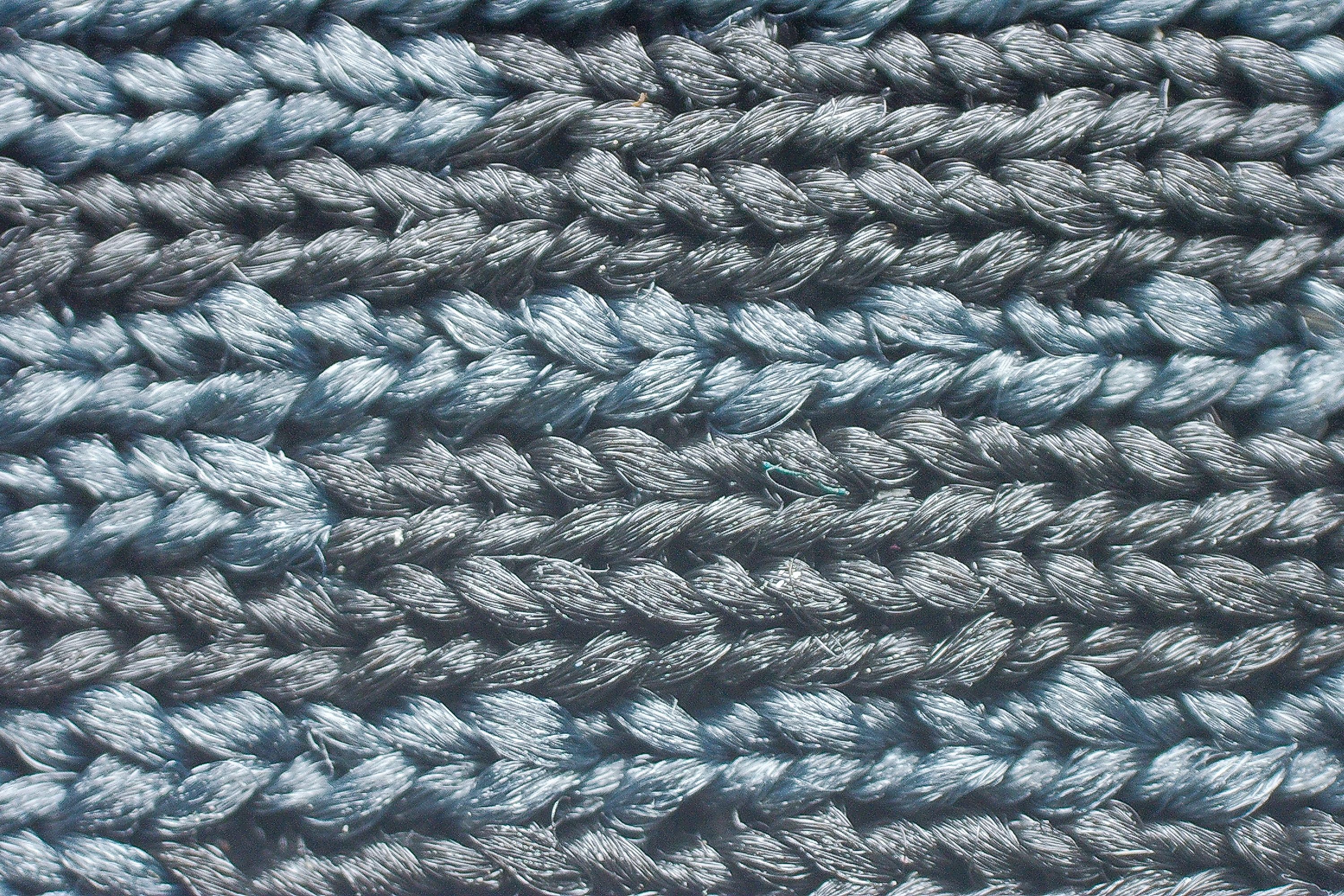
| Motiva | 3 |
| Average | 2.9 |
Stability
Lateral stability test
As you can probably tell by now, the Nike Motiva is fully attuned to continuous forward motion. We strongly warn you against taking this shoe to the gym or attempting any aggressive lateral movements in it.
The video below shows that the Motiva almost feels like standing on a fitness ball! It wants you to rock forward and not any other direction.
So, if you are someone with excessive inward rolling of the foot (overpronation) or other foot conditions, you may prefer a much more stable and supportive Skechers Max Cushioning Arch Fit.
Torsional rigidity
But hear us out, if you're only using this Nike shoe for walking and jogging, we promise that there are no issues with stability here. Never once did we feel like our ankles were about to roll over the shoe.
If you try to twist the Motiva like we did, you will see how incredibly stiff it is laterally! On a stiffness scale from 1 to 5, we readily rated it with the maximum 5!
| Motiva | 5 |
| Average | 2.9 |
Heel counter stiffness
The shoe's heel counter is not very stiff but it is amply padded to hold the heel and ankle securely in place. If 5 is the stiffest, we would rate this heel counter as 2.
| Motiva | 2 |
| Average | 2.4 |
Midsole width - forefoot
Of course, no shoe would not be fully stable without a wide platform with extended contact points. And the Nike Motiva takes care of this by offering some of the widest midsoles among walking shoes!
Measuring the distance between the widest points of the forefoot, we got 116 mm. A few millimeters wider than average.
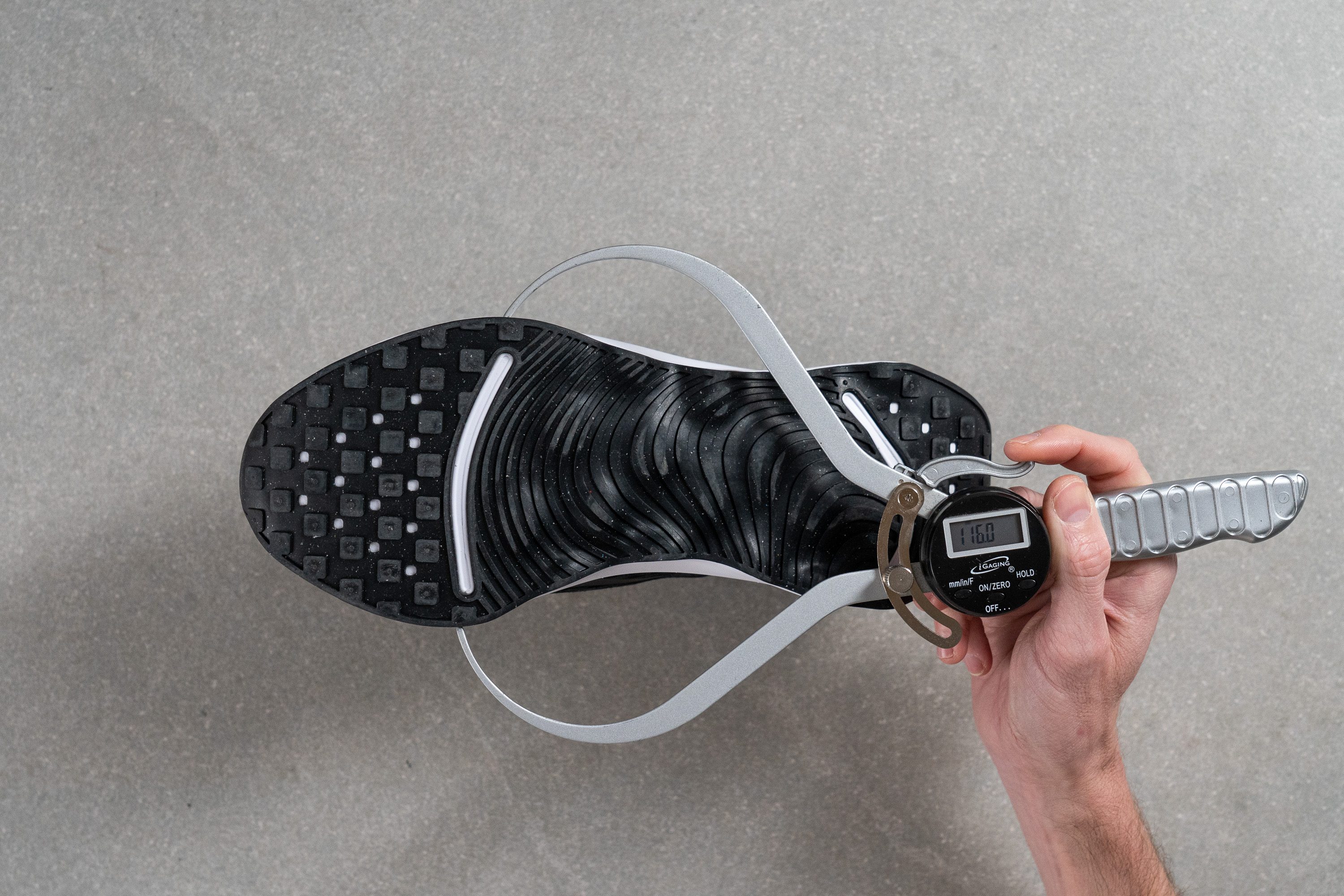
| Motiva | 116.0 mm |
| Average | 112.0 mm |
Midsole width - heel
The shoe's platform widens again at the heel. Here, we measured the widest area at 96.6 mm, much wider than average!
A wide landing area in the heel is crucial when you're dealing with such squishy cushioning.
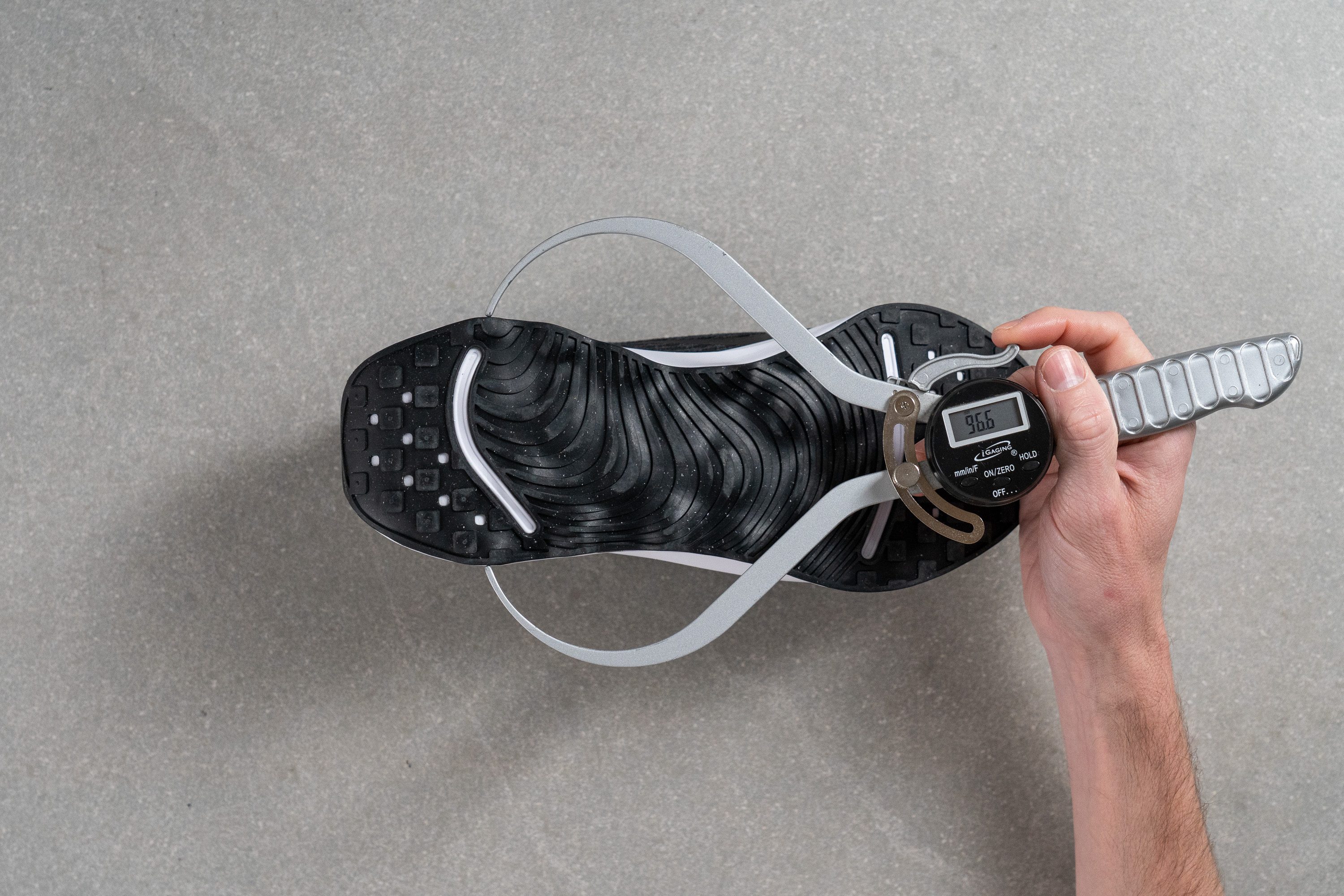
| Motiva | 96.6 mm |
| Average | 90.3 mm |
Durability
Toebox durability
But the good news is that this monolithic material is quite resistant to abrasion. We were amazed at how well the Motiva's upper stood up to our durability test with a Dremel!
We pressed the tool's sandpaper tip against the shoe's toebox material for 12 seconds at consistent pressure (3.2N) and speed (5K RPM).
And the result was stunning! Our Dremel didn't even cut through all of the threads, making more of a cosmetic mess. This earned the Nike Motiva a high score of 4 out of 5 for toebox durability.
Just look at what the same test did to a mesh upper on another shoe!
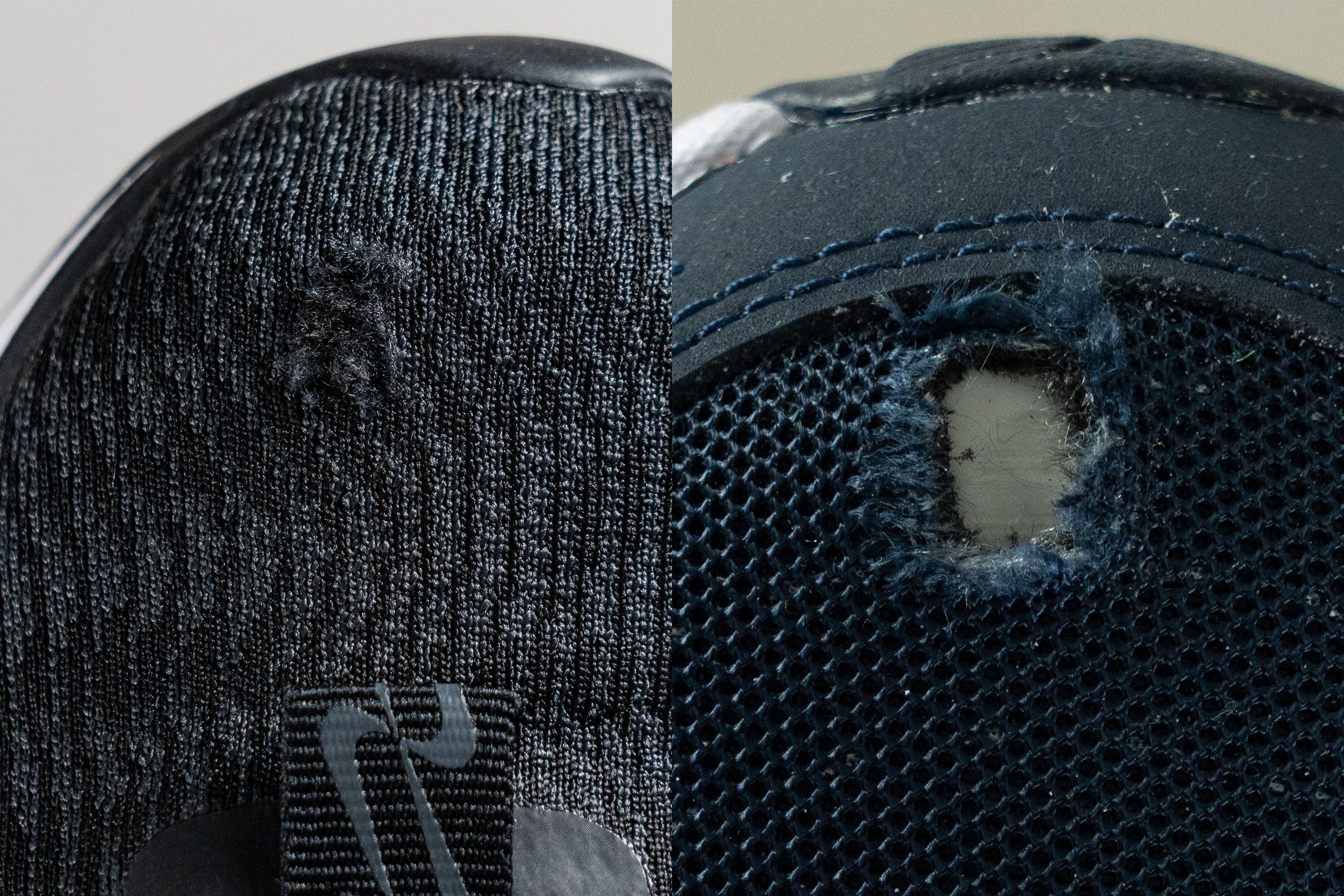
We put a piece of white material inside the shoe to show the damage more clearly.
| Motiva | 4 |
| Average | 3.2 |
Heel padding durability
For a not-so-expensive shoe, the Motiva keeps showing great quality of upper materials!
Drilling the shoe's lining inside the heel collar for 4 seconds, we saw a pretty moderate level of damage. On a 1-5 scale, we rated it with a well-deserved 3.
And if that score doesn't seem to reassuring to you, just have a look at what 1 out of 5 looks like in the photo below.
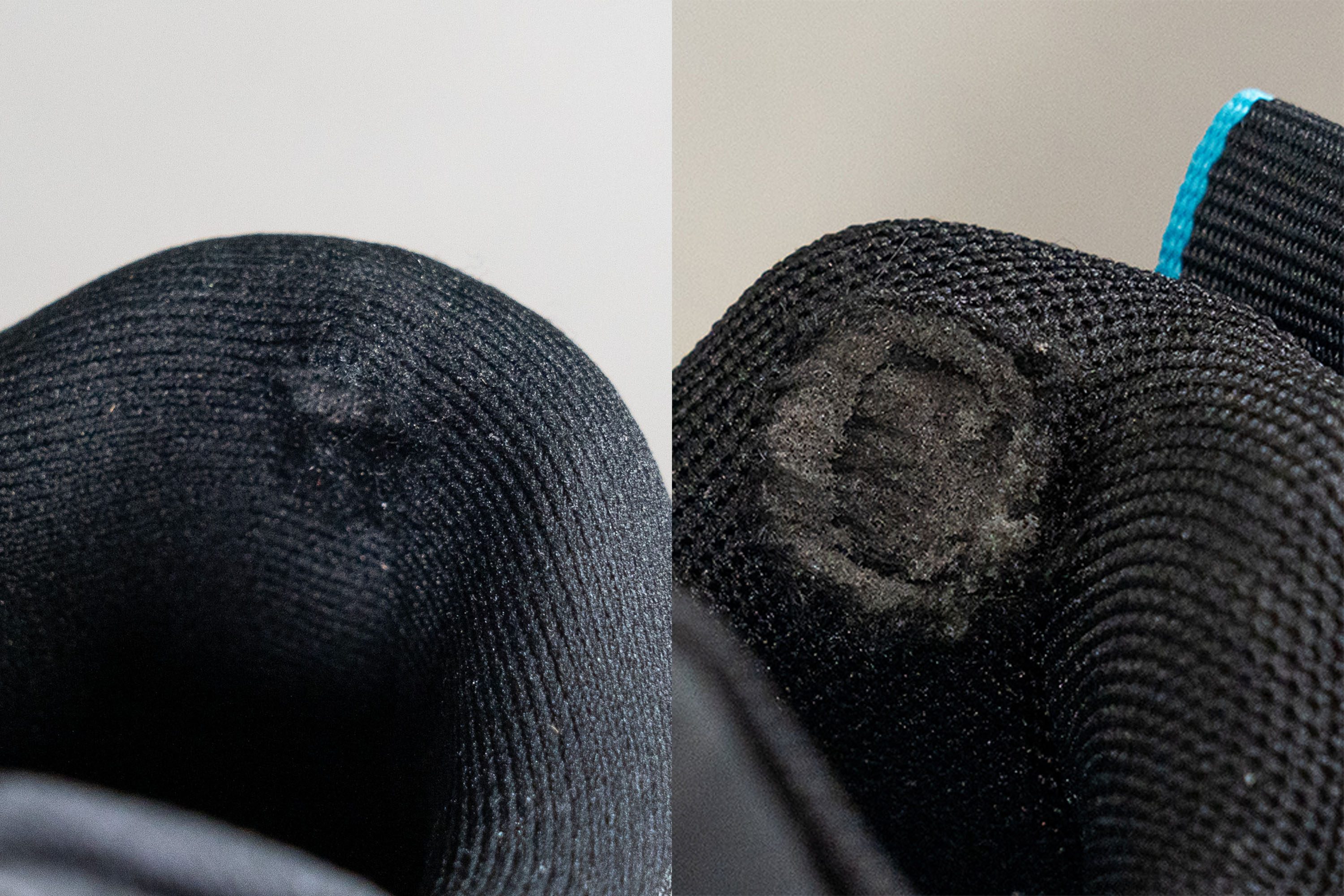
| Motiva | 3 |
| Average | 2.3 |
Outsole hardness
With our expectations set high for this Nike shoe, we went on to check the durability of its outsole.
Pressing our durometer against the shoe's rubber outsole, it showed a very promising reading of 92.0 HC. Being 20% harder than average, it is also pretty likely to be more durable than average.
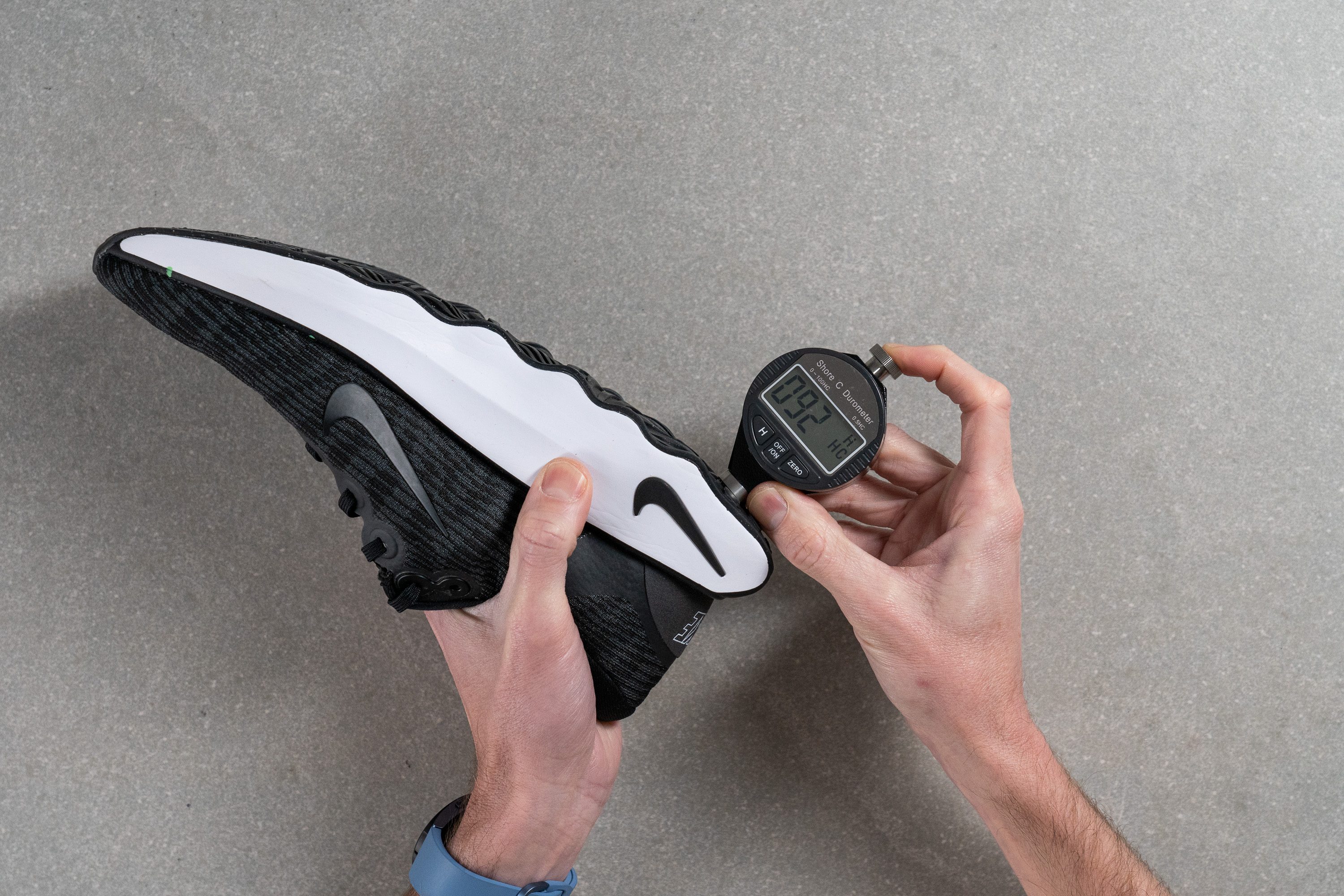
| Motiva | 92.0 HC |
| Average | 78.0 HC |
Outsole durability
To our delight, this proved to be true!
Using the Dremel again, we turned it up to a higher speed (10K RPM) and pressed it against one of the shoe's rubber lugs for 22 seconds.
We measured the newly formed dent with a tread gauge and it showed only 1.2 mm of depth. We are happy to report that this is shallower than the average dent created by the Dremel!
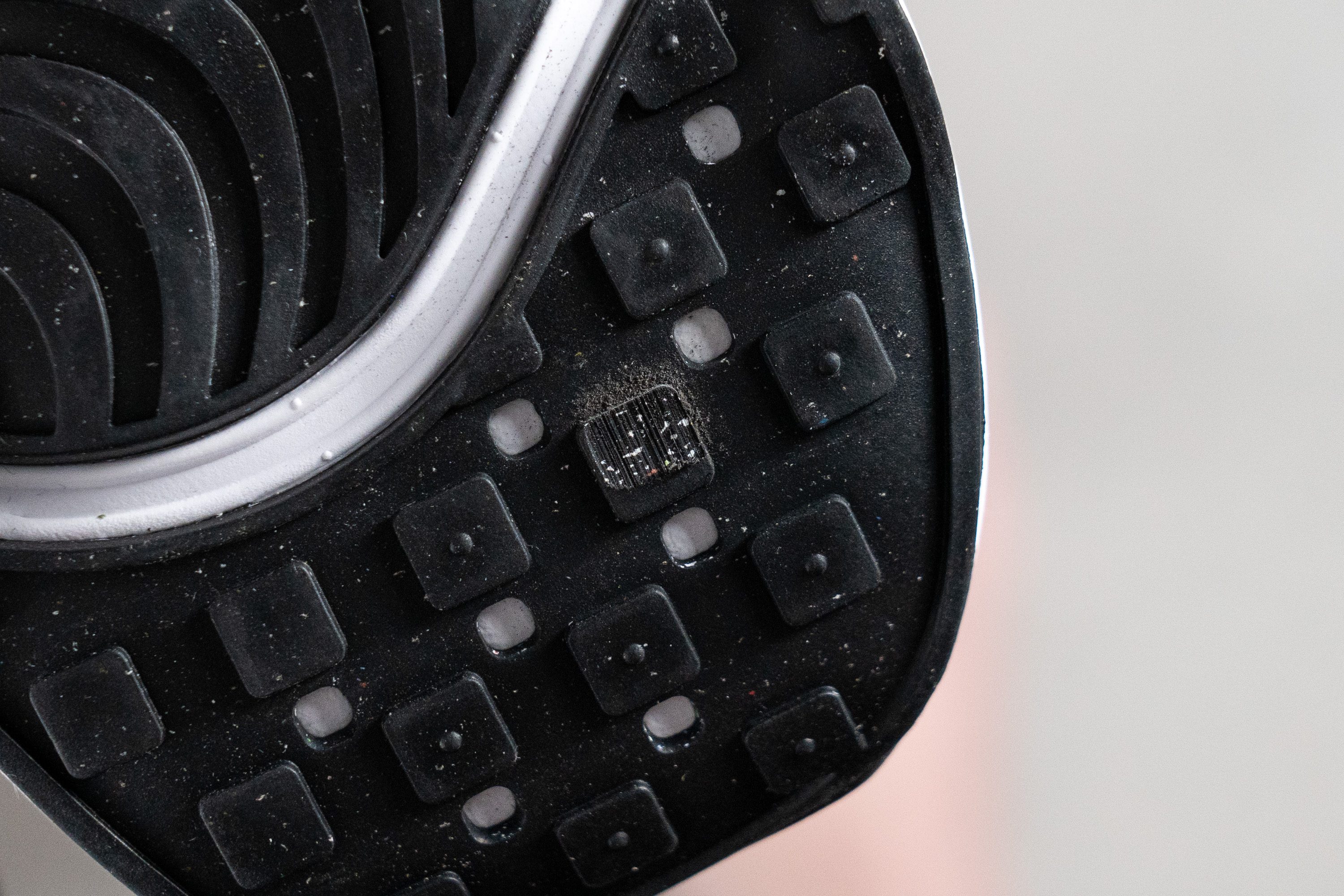
| Motiva | 1.2 mm |
| Average | 1.4 mm |
Outsole thickness
Nike also used a slightly thicker-than-average outsole for the Motiva. Seeing 3.0 mm of rubber on our caliper further convinced us of the Motiva's potential to last hundreds of miles.
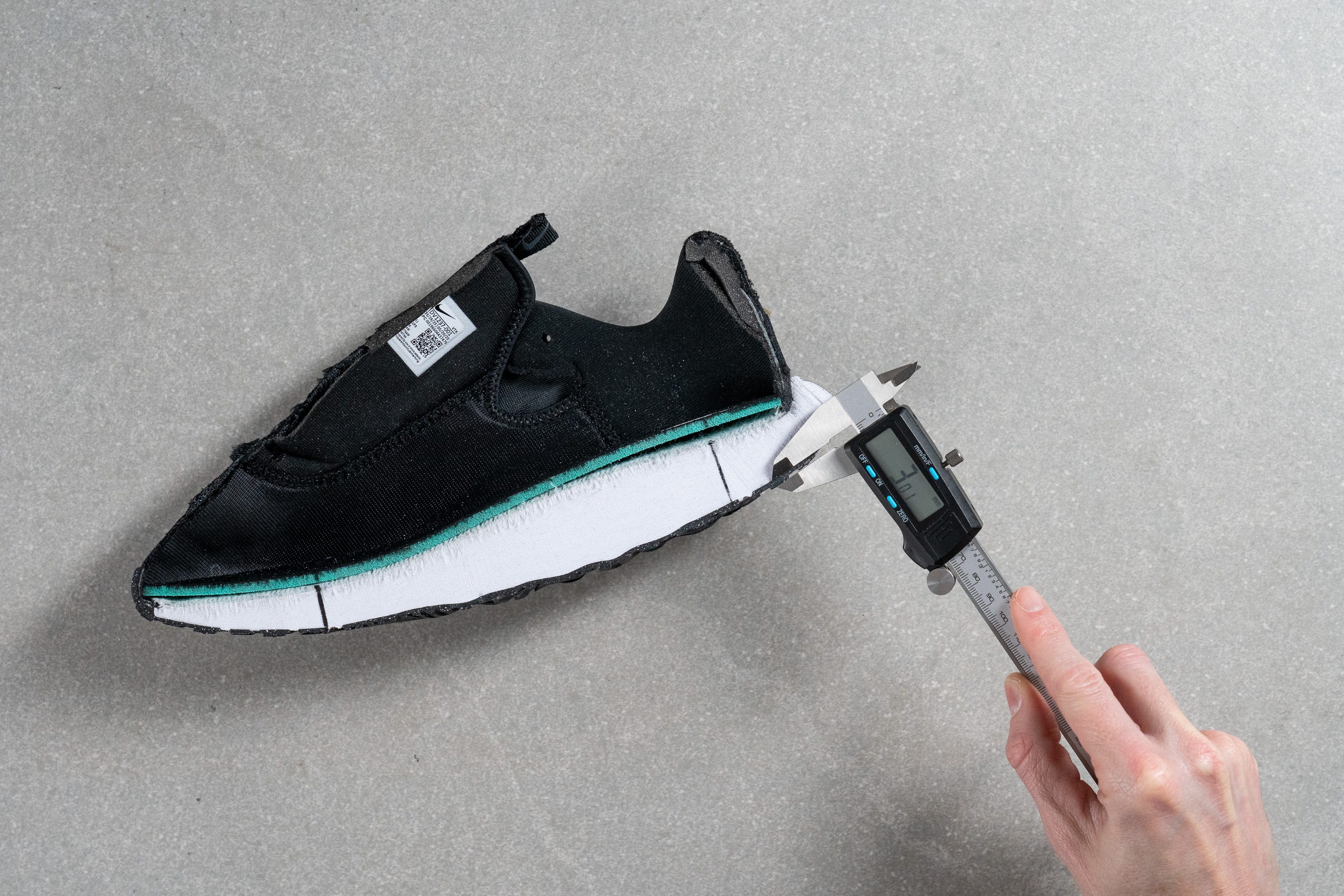
| Motiva | 3.0 mm |
| Average | 3.0 mm |
Misc
Insole thickness
Given the shoe's exceptionally comfortable midsole, there wasn't much need for a super cushy insole. The latter is only lightly padded at 4.2 mm in the heel.
| Motiva | 4.2 mm |
| Average | 5.8 mm |
Removable insole
The stock insole is easily removable in the Nike Motiva. In case you decide to level up the shoe's comfort or arch support.
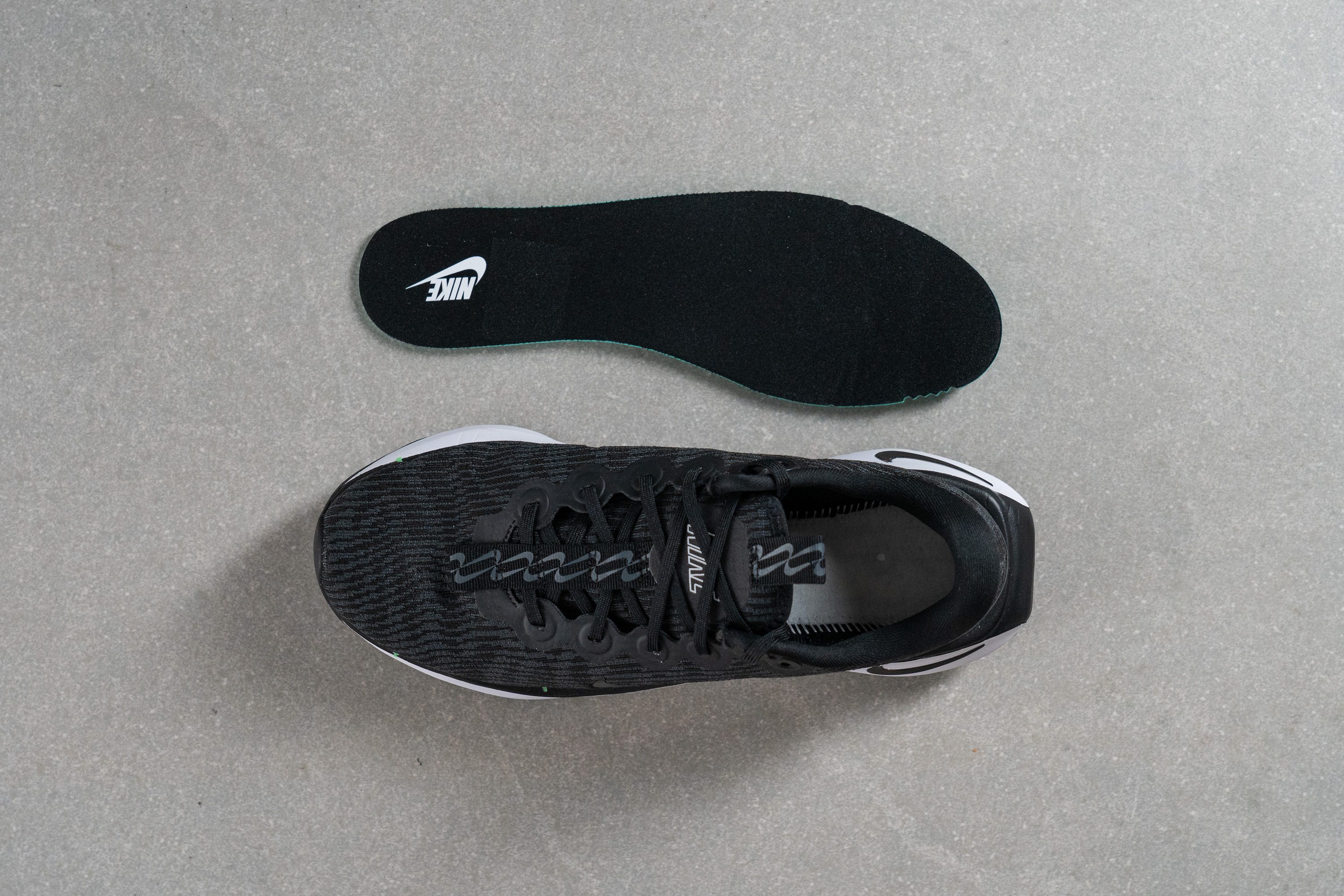
| Motiva | Yes |
Midsole softness in cold (%)
Given the shoe's warm upper, we thought you might want to wear it in the colder months of the year as well. But does its cushioning remain just as soft when the temperatures drop?
It does!
Even though it's not one of Nike's super foams it certainly is a magical foam. After spending 20 minutes in the freezer, the shoe's foam did get 15.9% firmer but it remained 95% plusher than other foams in the same conditions!
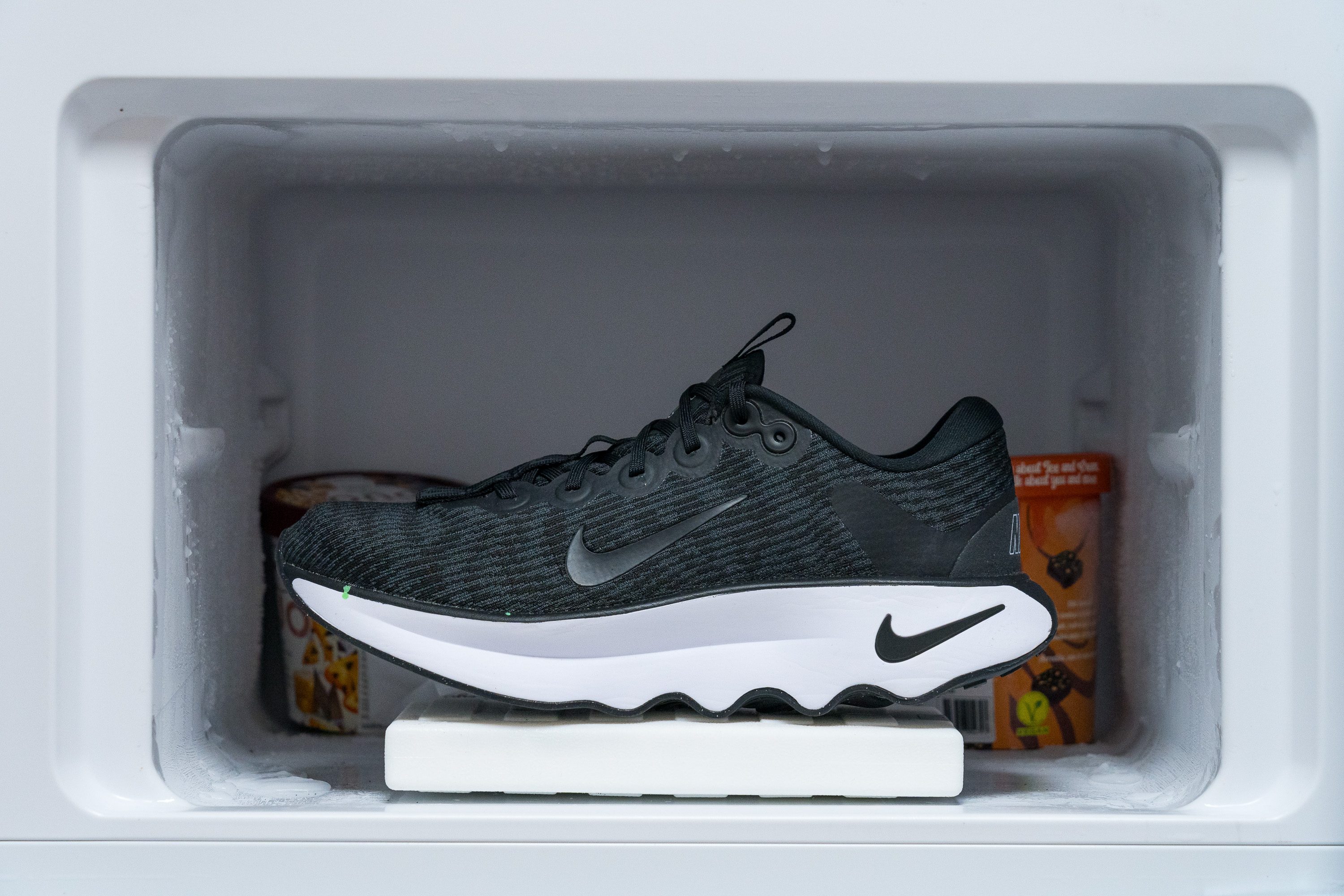
| Motiva | 16% |
| Average | 30% |
Tongue padding
The Motiva's tongue is substantially more padded than average, showing 11.5 mm on our caliper. It is twice as thick as a typical walking shoe tongue.
It does detract from the shoe's breathability but amplifies the in-shoe comfort.
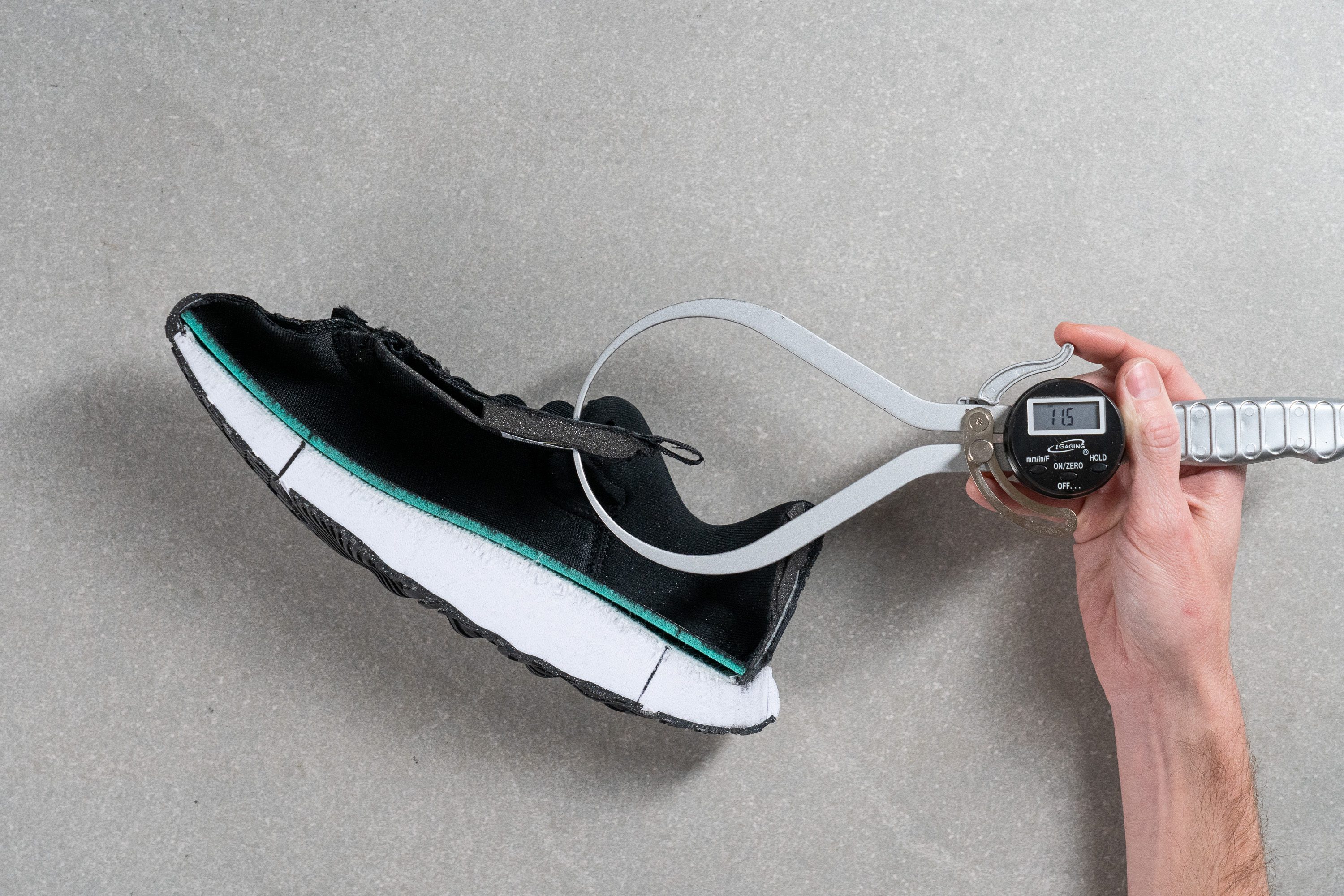
| Motiva | 11.5 mm |
| Average | 5.6 mm |
Tongue: gusset type
The shoe's tongue is fully integrated into the upper, forming a bootie-like structure that holds the foot very securely.
There was no unwanted foot shifting or play inside the Nike Motiva which greatly contributed to our surefootedness.
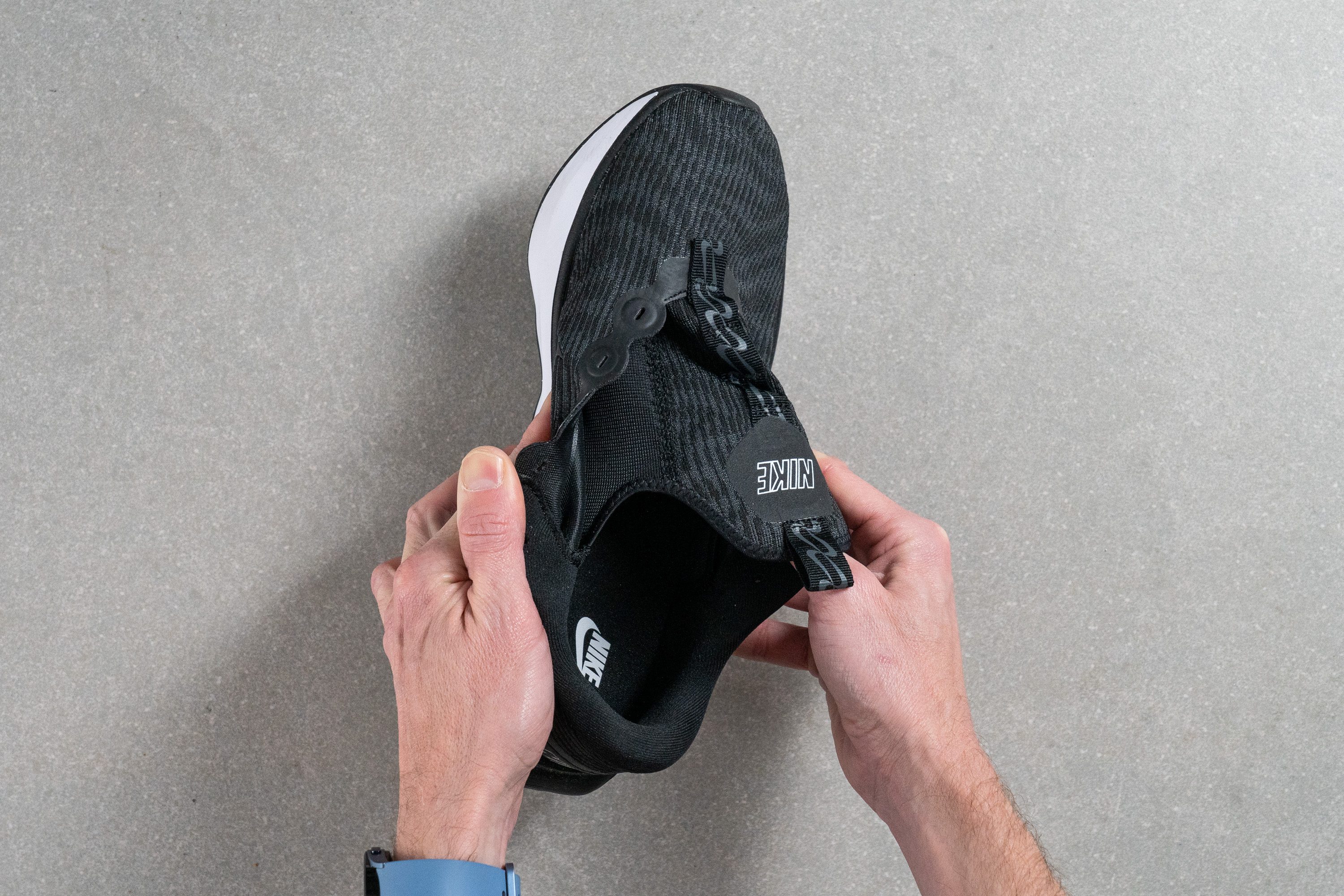
| Motiva | Bootie |
Heel tab
There is no pull tab or finger loop to assist in getting the shoe on. And given the shoe's bootie upper, so you will most likely need both hands to slide into it.
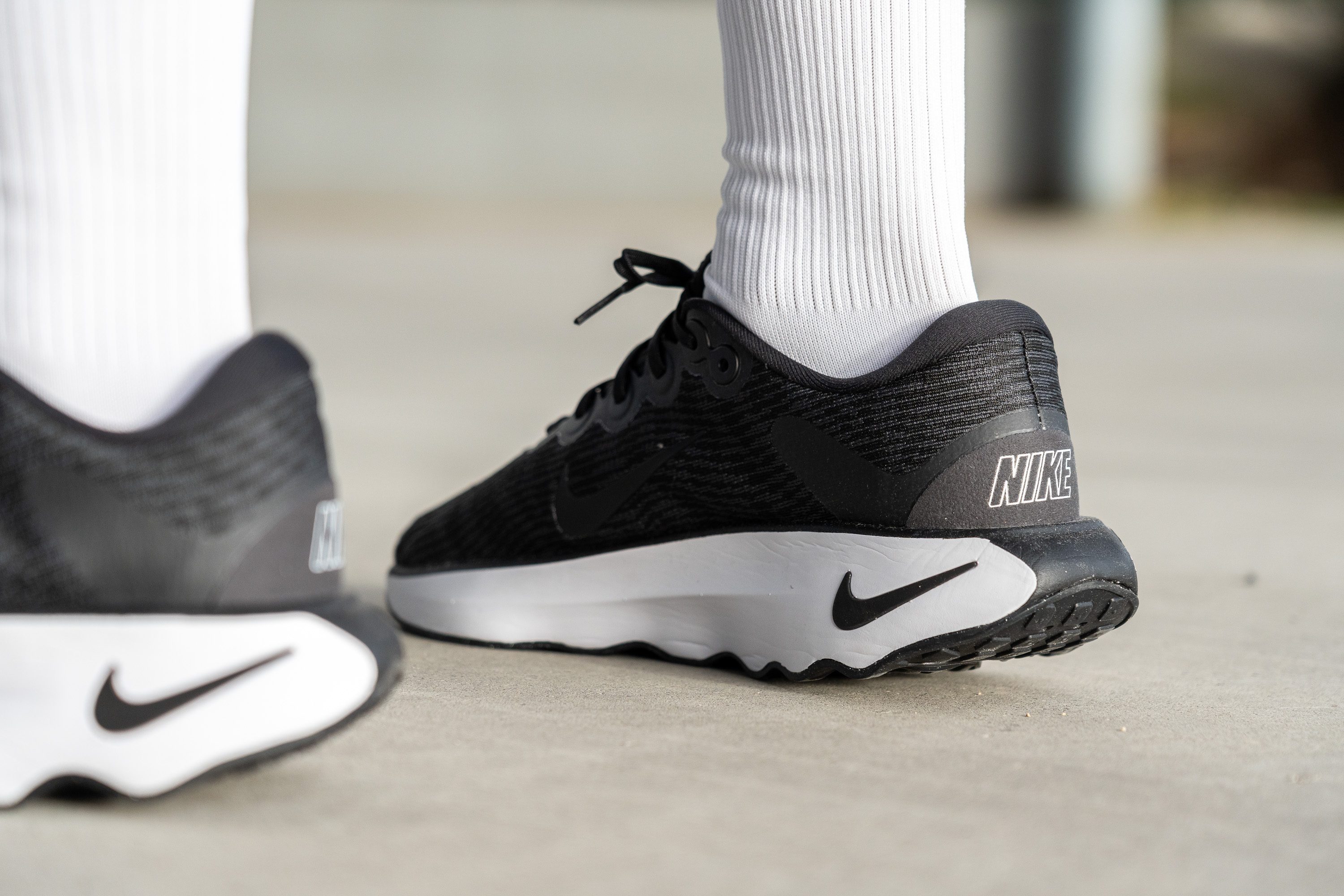
| Motiva | None |

